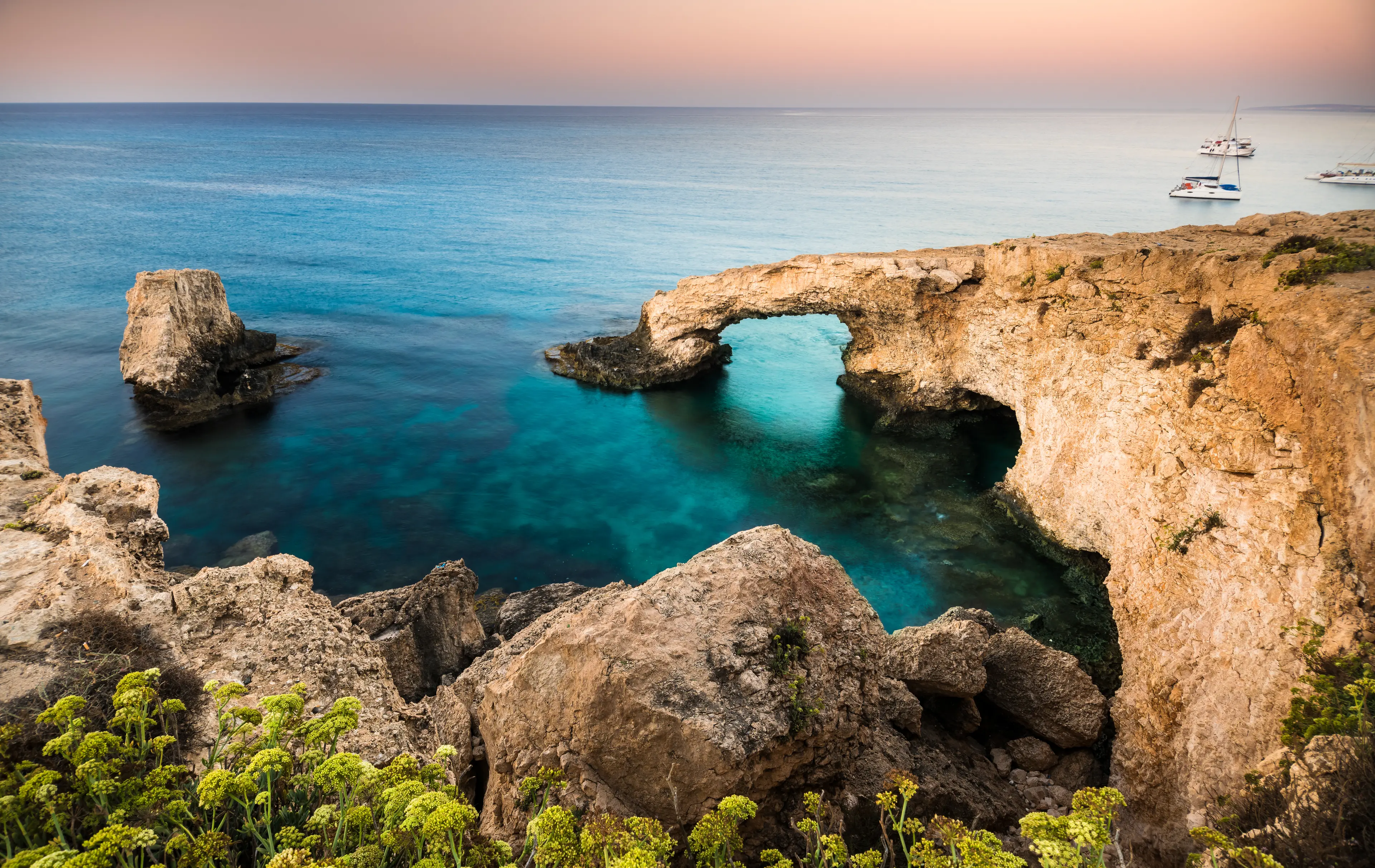7-Day Spectacular Cyprus Exploration Itinerary
Cyprus
7 days
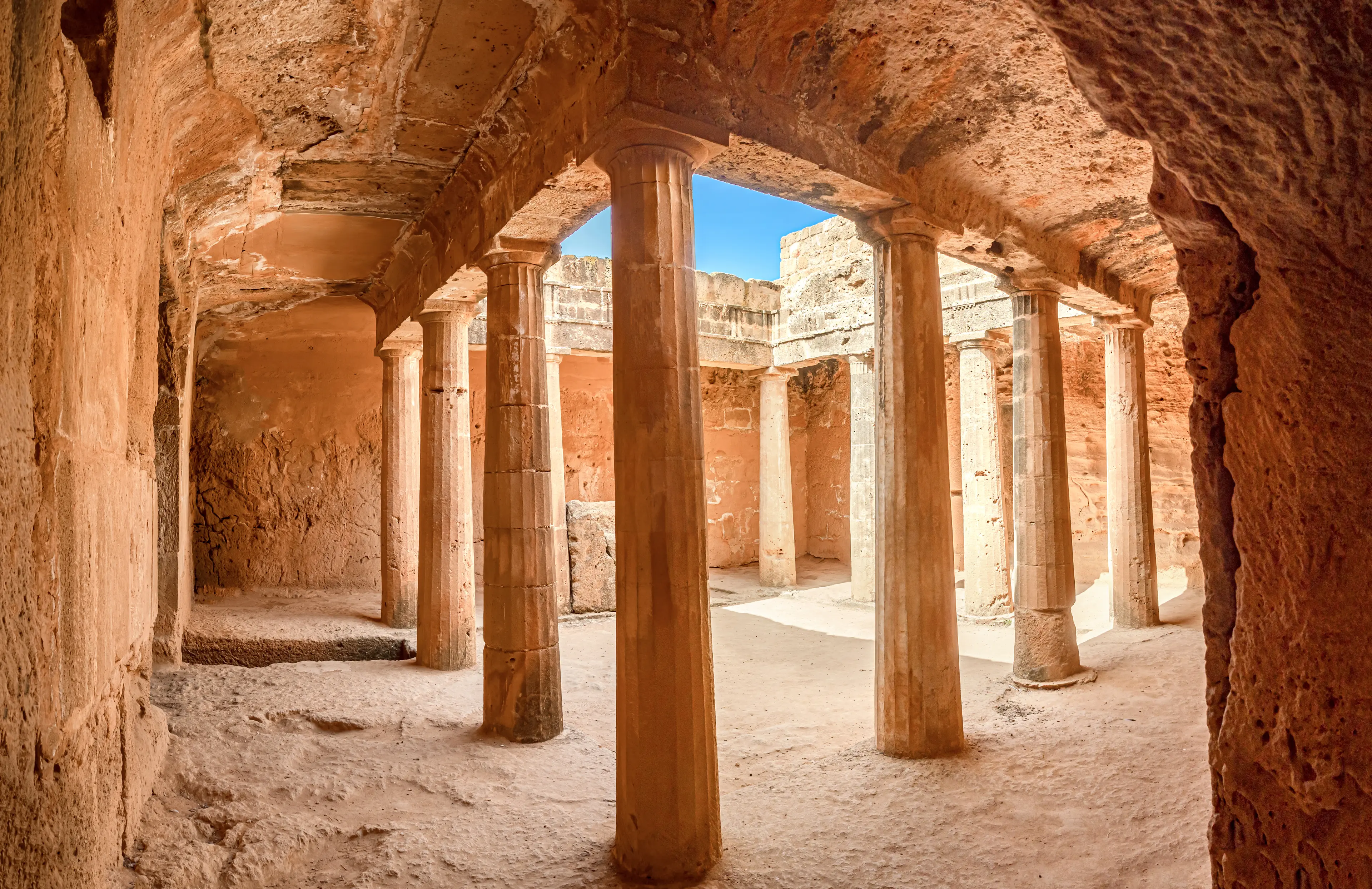

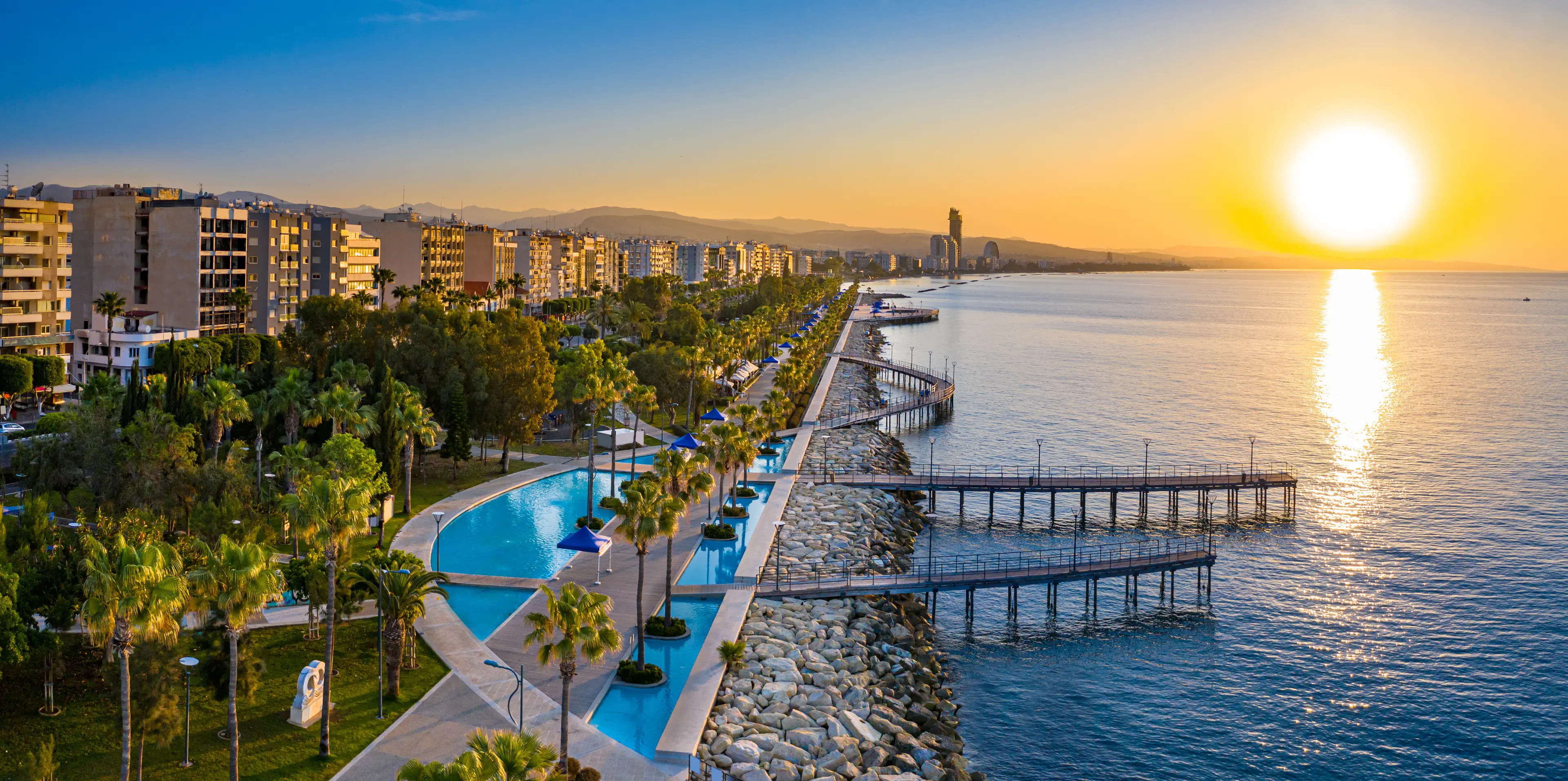
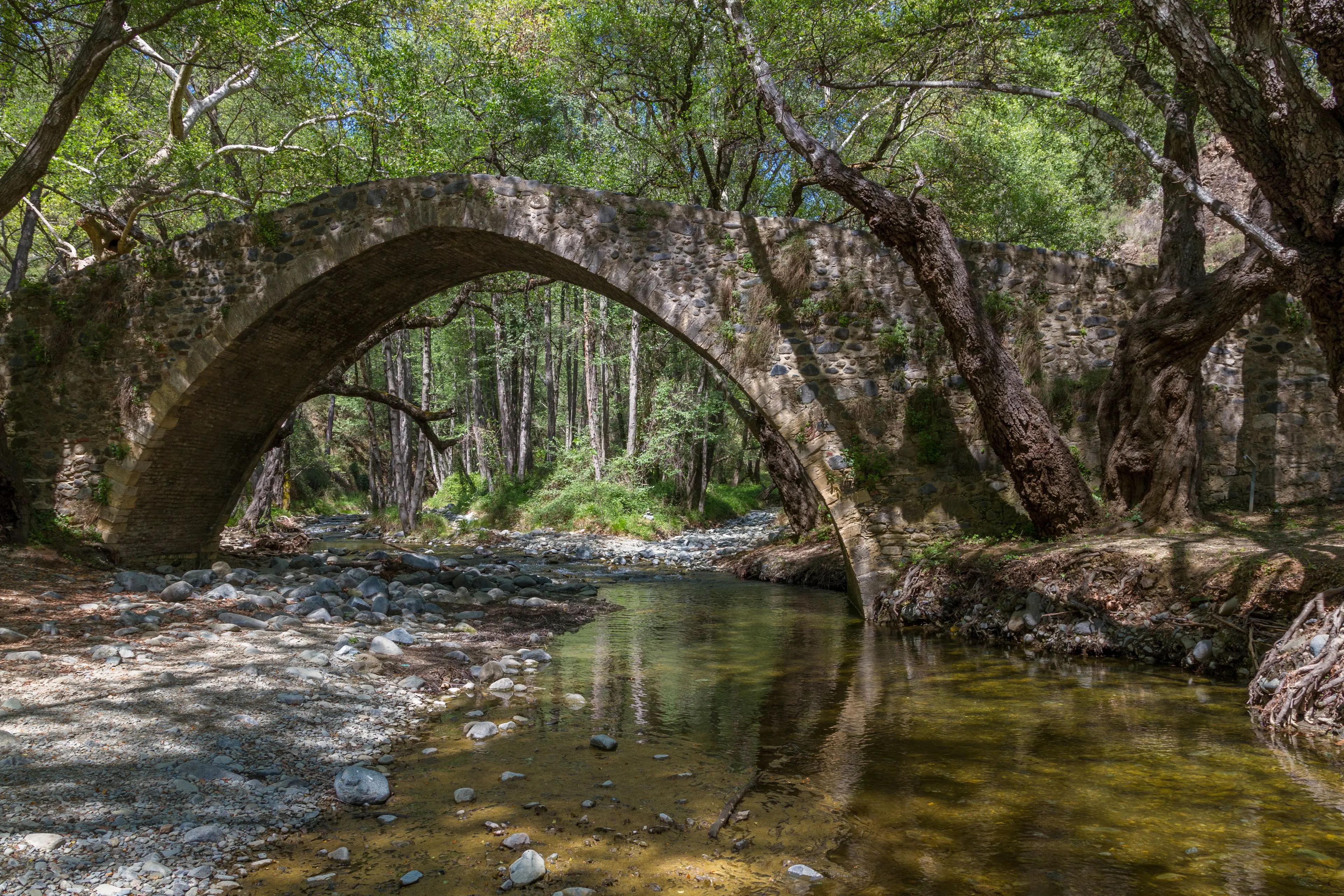
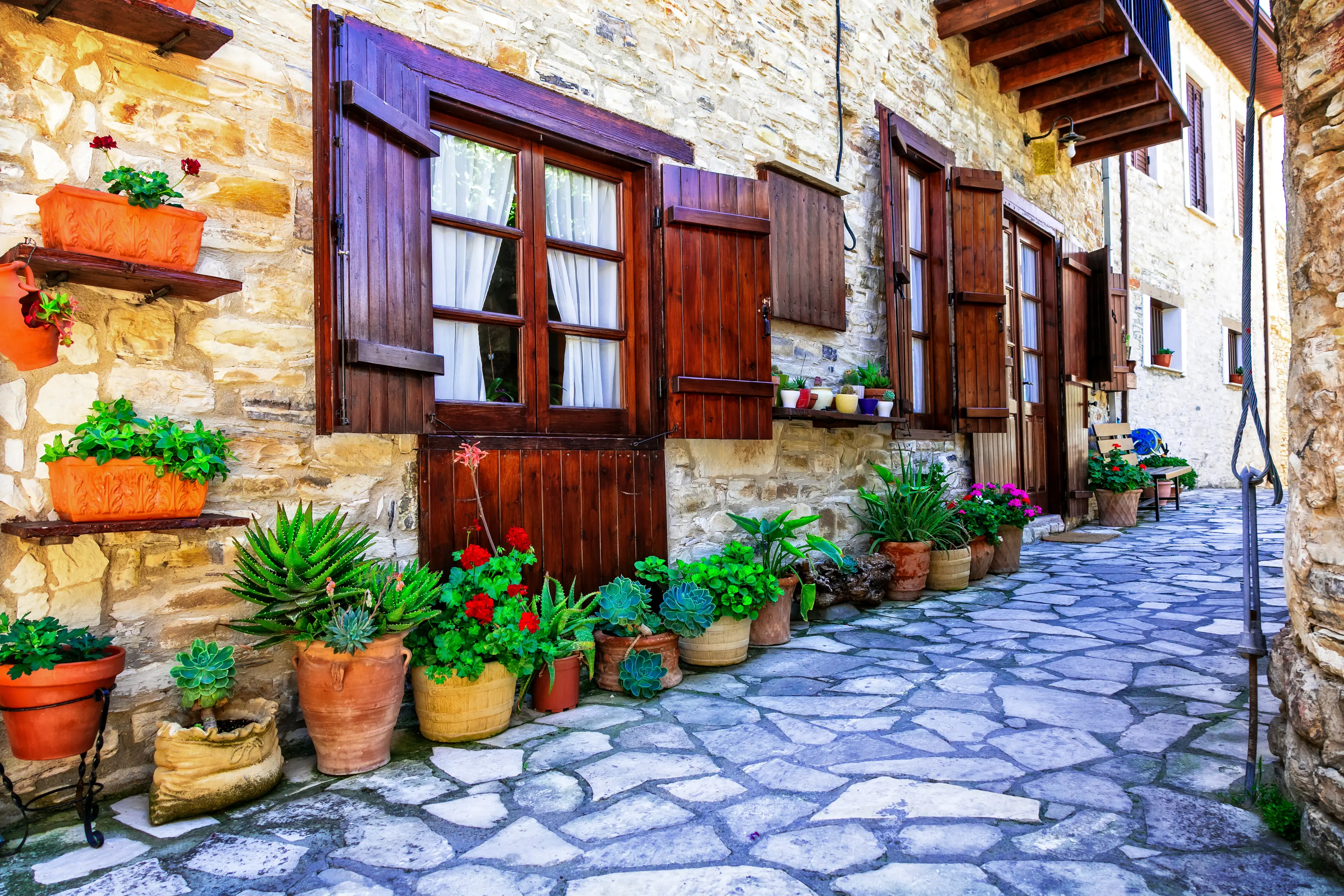
About Cyprus
Discover the enchanting island of Cyprus, a Mediterranean gem rich in history and culture. Explore ancient archaeological sites, like the Tombs of the Kings, or stroll through the charming streets of Paphos, a UNESCO World Heritage city. Cyprus offers stunning beaches, crystal-clear waters, and a vibrant nightlife, particularly in the bustling city of Ayia Napa. Indulge in delicious Cypriot cuisine, featuring fresh seafood, halloumi cheese, and local wines. The Troodos Mountains offer hiking trails with breathtaking views and quaint villages to explore. With its warm, sunny climate, Cyprus is a year-round destination. Whether you're seeking relaxation, adventure, or cultural immersion, Cyprus promises an unforgettable travel experience.
7-Day Itinerary
Day 2
Discovering Limassol
Morning
Head to the coastal city of Limassol. Visit the Limassol Castle and the Archaeological Museum.
Lunch
Have lunch in a seaside restaurant, enjoying fresh seafood and local wine.
Afternoon
Relax on the beautiful beaches of Limassol, enjoying the sun and the crystal clear waters.
Dinner
Dine in a beachfront restaurant, enjoying the sunset and the delicious Cypriot cuisine.
Evening
Experience the lively nightlife of Limassol, visiting local bars and clubs.
Day 3
Uncovering Paphos
Morning
Travel to Paphos and visit the Paphos Archaeological Park, home to beautiful Roman mosaics.
Lunch
Enjoy a light lunch in a local café, trying traditional Cypriot pastries.
Afternoon
Visit the Tombs of the Kings, a UNESCO World Heritage Site, and the Paphos Fort.
Dinner
Have dinner in a traditional taverna, tasting local dishes like moussaka and afelia.
Evening
Take a walk along the Paphos Harbour, enjoying the evening breeze and the beautiful views.
Day 4
Mountain Retreat in Troodos
Morning
Start your day in the Troodos Mountains. Visit the Kykkos Monastery, one of the most famous in Cyprus.
Lunch
Have a picnic lunch in the mountains, enjoying the beautiful scenery and the fresh air.
Afternoon
Explore the nature trails of the Troodos Mountains, enjoying the rich flora and fauna of the area.
Dinner
Enjoy a hearty dinner in a mountain tavern, tasting traditional Cypriot dishes like kleftiko and stifado.
Evening
Relax in your mountain lodge, enjoying the peace and quiet of the Troodos Mountains.
Day 5
Larnaca's Coastal Charm
Morning
Visit the coastal city of Larnaca. Explore the Larnaca Salt Lake and the Hala Sultan Tekke mosque.
Lunch
Have lunch in a local restaurant, trying the famous Cypriot souvlaki and sheftalia.
Afternoon
Relax on the beautiful beaches of Larnaca, enjoying the sun and the crystal clear waters.
Dinner
Dine in a beachfront restaurant, enjoying the sunset and the delicious Cypriot cuisine.
Evening
Take a walk along the Larnaca promenade, enjoying the evening breeze and the beautiful views.
Day 6
Village Life in Omodos
Morning
Travel to the village of Omodos in the Troodos Mountains. Visit the Monastery of the Holy Cross and the local wineries.
Lunch
Enjoy a traditional Cypriot lunch in a village taverna, tasting local dishes like loukoumades and halloumi.
Afternoon
Explore the charming village of Omodos, visiting the local craft shops and the old wine press.
Dinner
Have dinner in a local taverna, tasting the famous Cypriot meze, a selection of small dishes.
Evening
Relax in your village house, enjoying the peace and quiet of the Cypriot countryside.
Day 7
Beach and Nightlife in Ayia Napa
Morning
Spend your last day in Ayia Napa. Visit the Ayia Napa Monastery and the Thalassa Museum.
Lunch
Have lunch in a seaside restaurant, enjoying fresh seafood and local wine.
Afternoon
Relax on the beautiful beaches of Ayia Napa, enjoying the sun and the crystal clear waters.
Dinner
Dine in a beachfront restaurant, enjoying the sunset and the delicious Cypriot cuisine.
Evening
Experience the lively nightlife of Ayia Napa, visiting local bars and clubs.
Attractions in Itinerary (14)
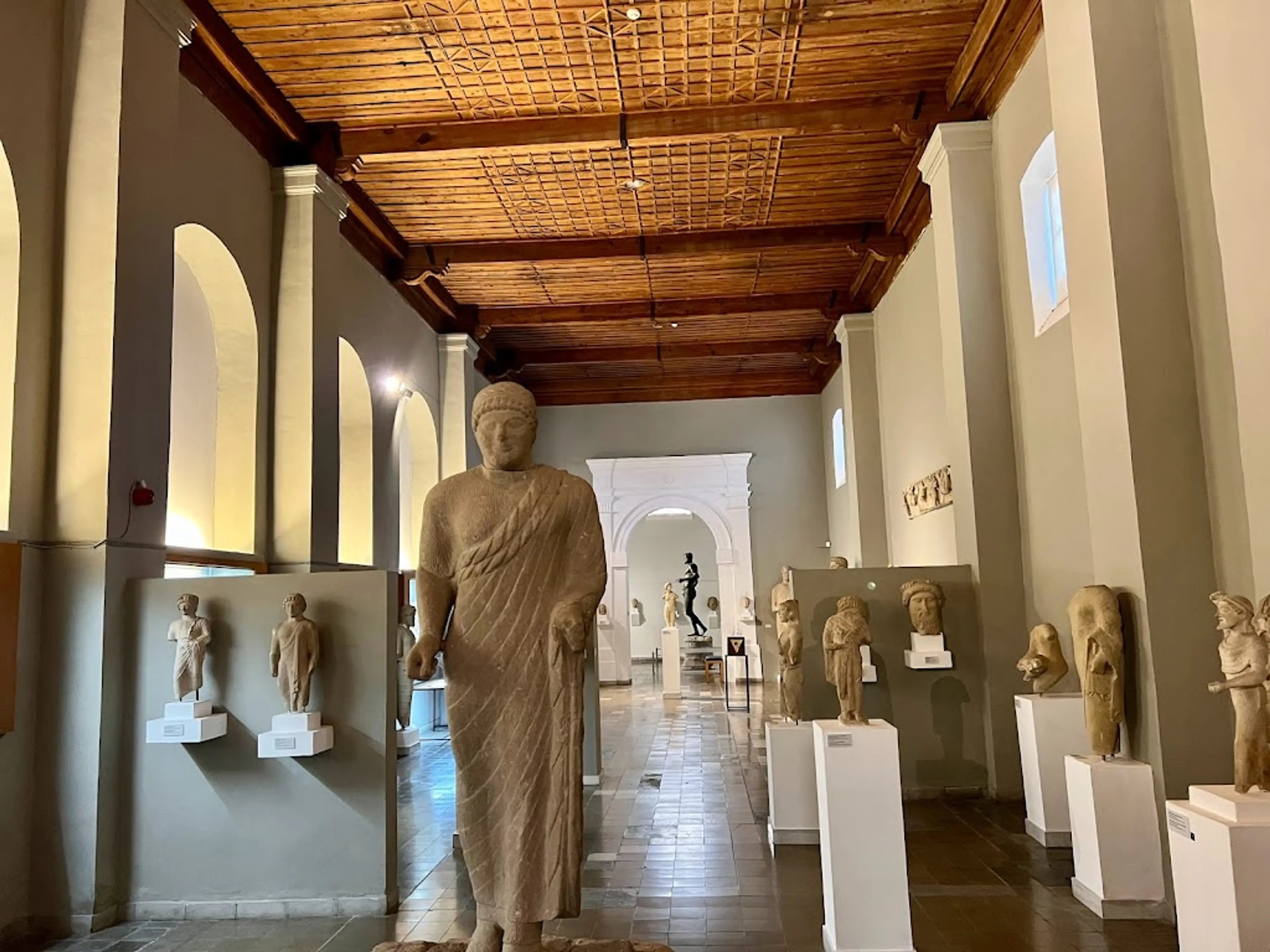
1Cyprus Museum
The largest and oldest archaeological museum in Cyprus, this museum houses a vast collection of artifacts from across the island, including statues, pottery, jewelry, and tools.
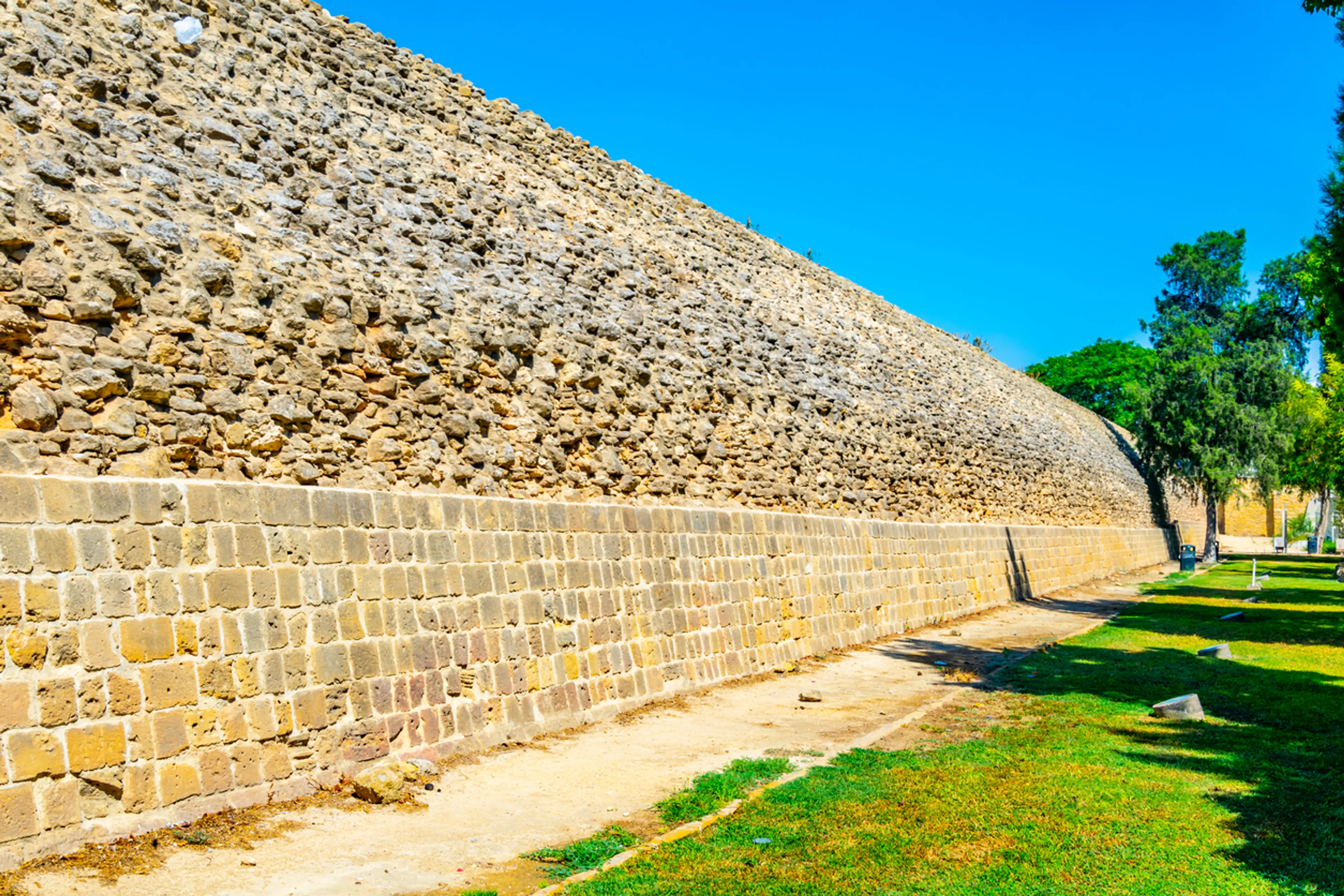
2Venetian Walls
These impressive 16th-century fortifications surround the old town of Nicosia. They are shaped like a star with 11 bastions and three gates, and offer a fascinating insight into the city's past.
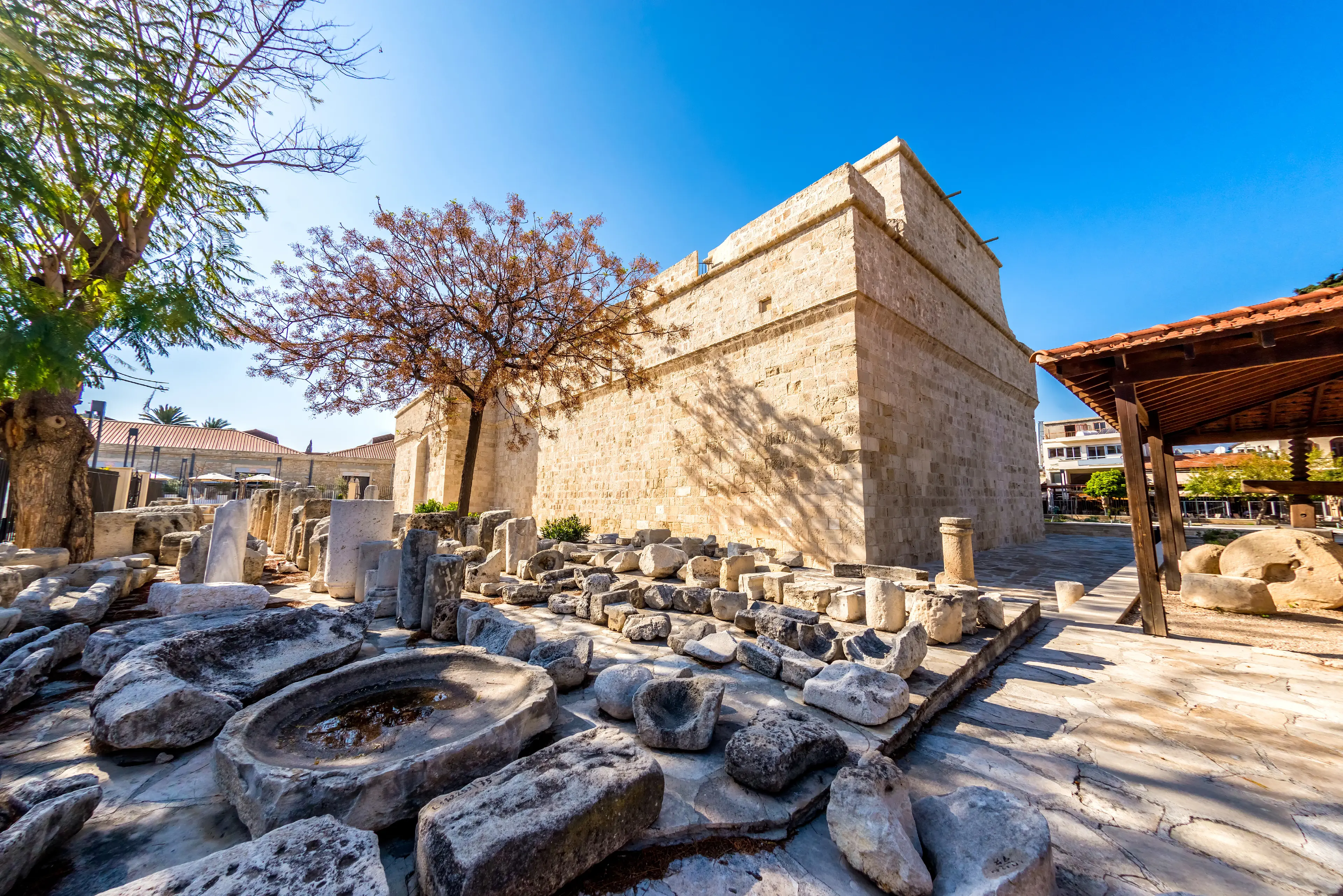
3Limassol Castle
A medieval castle in the center of Limassol, it now houses the Cyprus Medieval Museum.
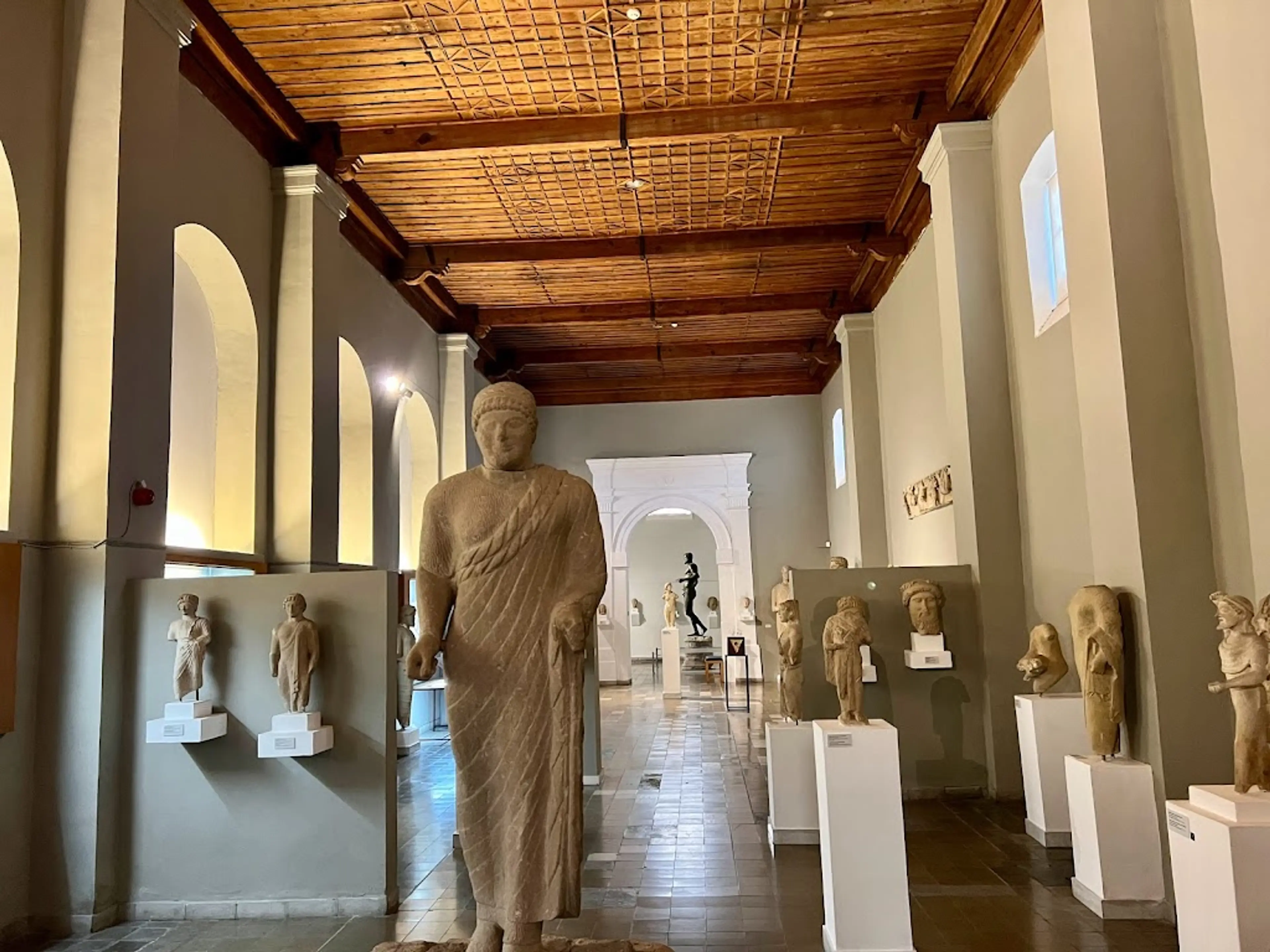
4Archaeological Museum
The Archaeological Museum in Cyprus houses a vast collection of artifacts from the Neolithic Age to the Roman Period, offering a comprehensive overview of the island's history through its exhibits.
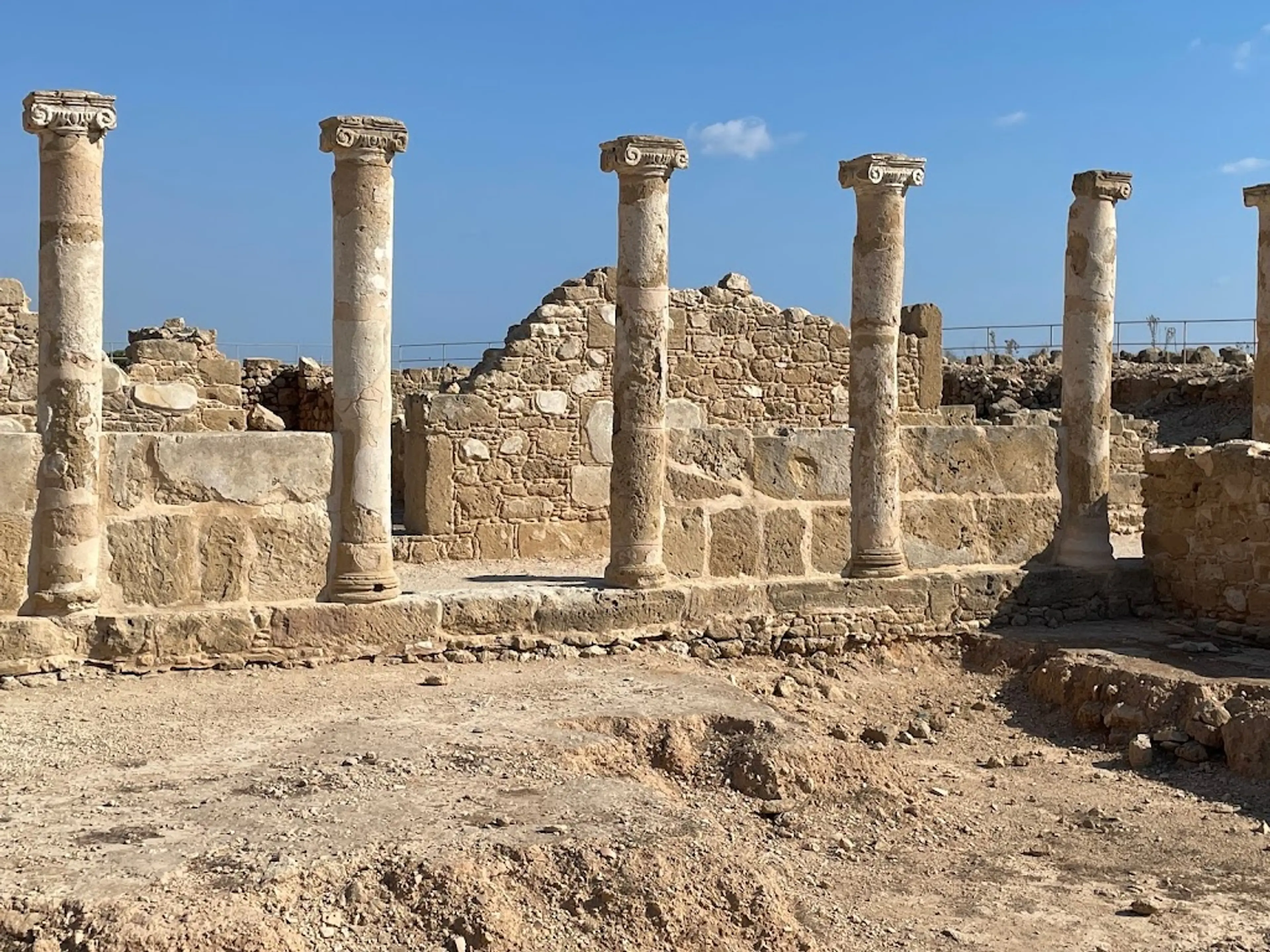
5Paphos Archaeological Park
A UNESCO World Heritage Site that houses a collection of ancient Roman villas, theaters, and fortresses.
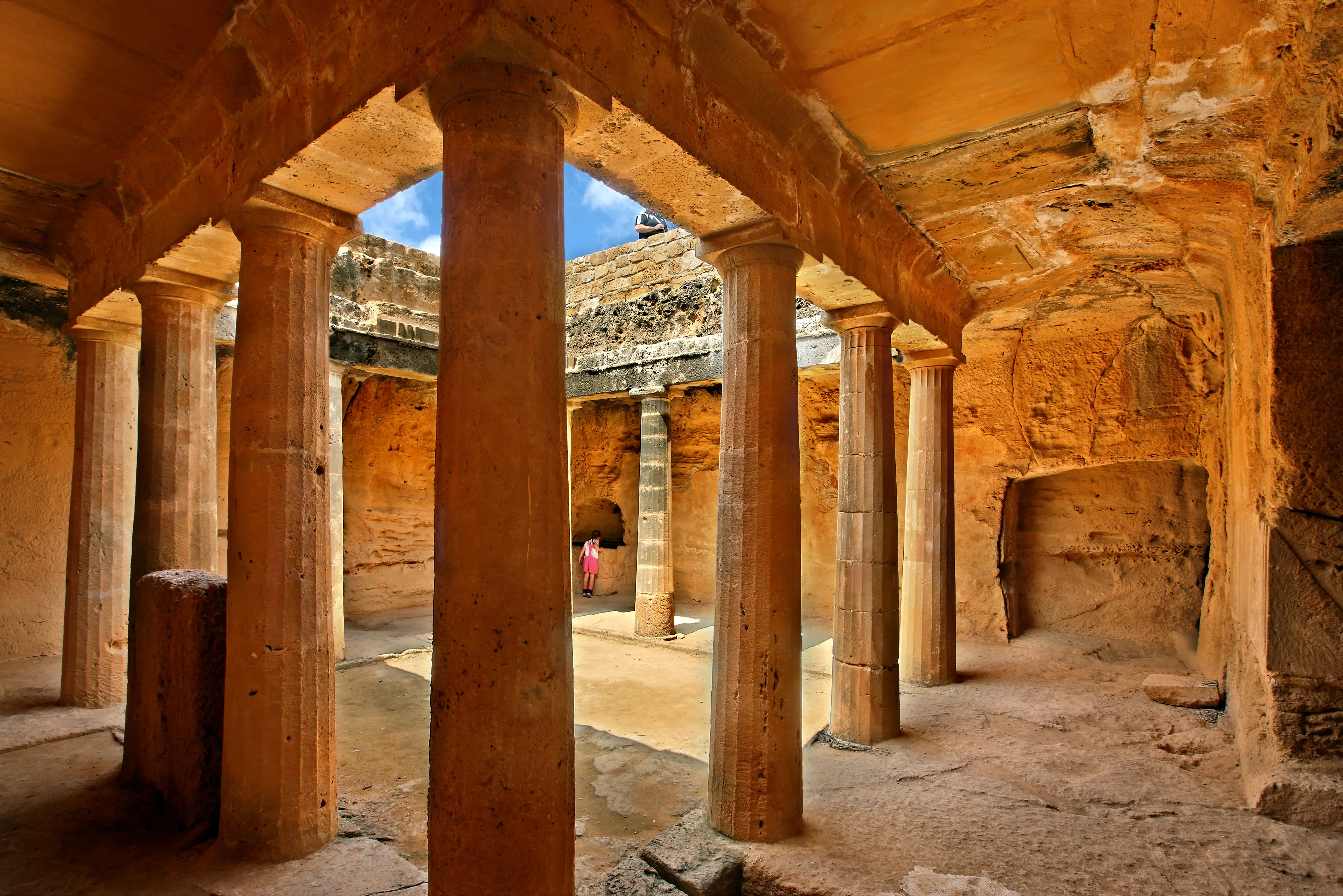
6Tombs of the Kings
A large necropolis dating back to the 4th century BC, it is a UNESCO World Heritage Site.
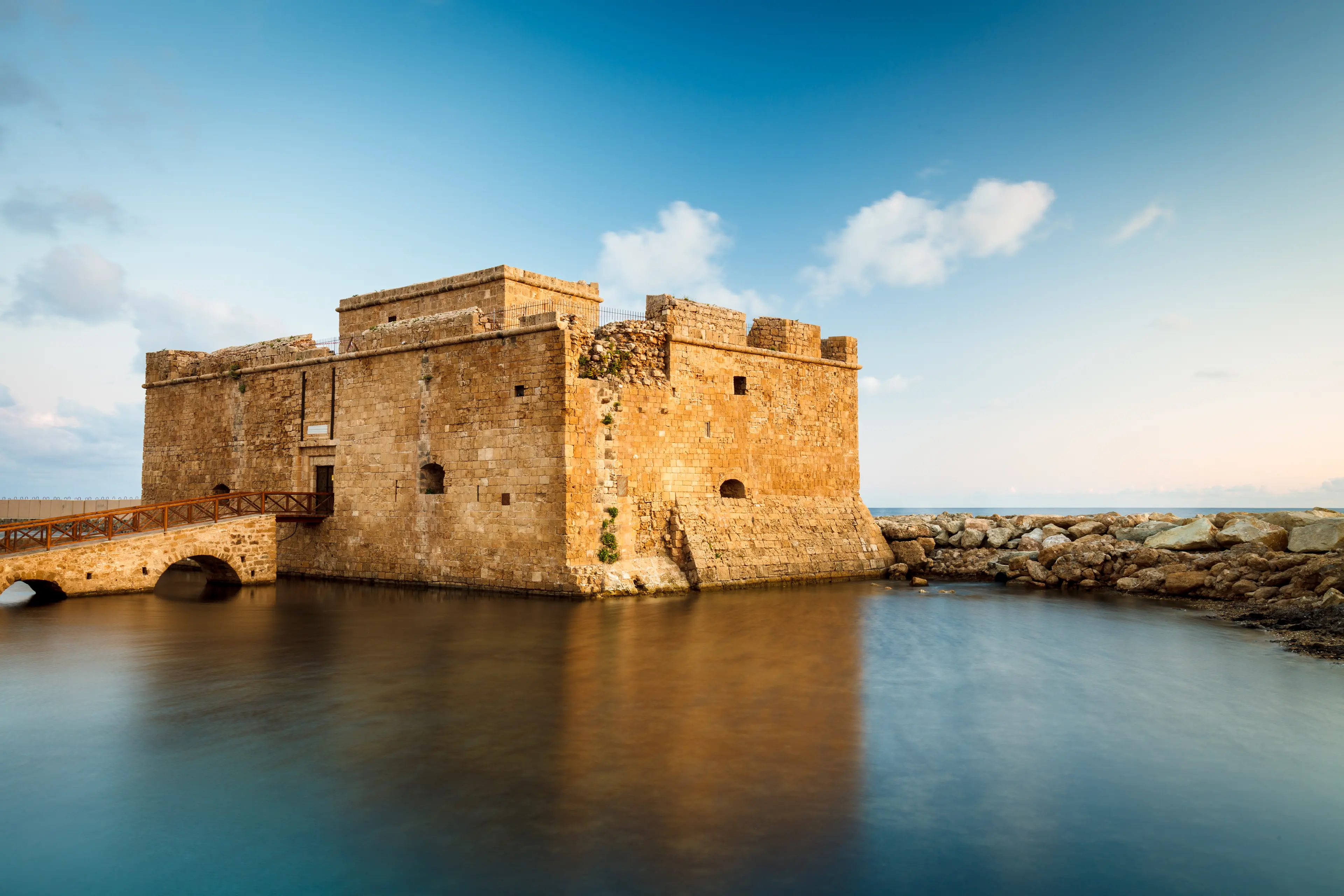
7Paphos Fort
Paphos Fort is a Byzantine fort located at the tip of Paphos harbour. It was originally built as a Byzantine fort to protect the harbour, and was rebuilt by the Lusignans in the 13th century, but was dismantled by the Venetians.
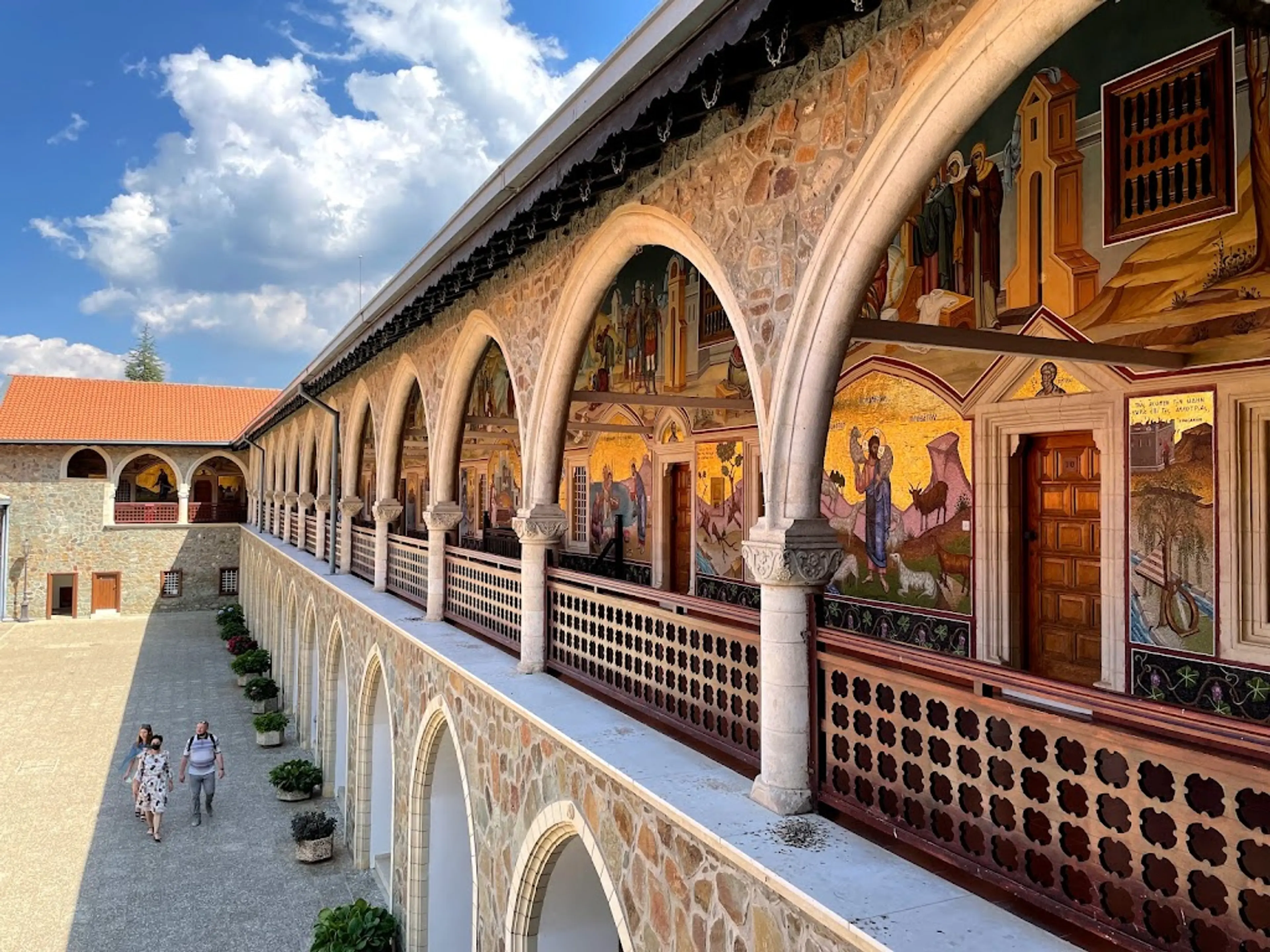
8Kykkos Monastery
One of the wealthiest and best-known monasteries in Cyprus, it is home to one of three icons attributed to Apostle Luke.
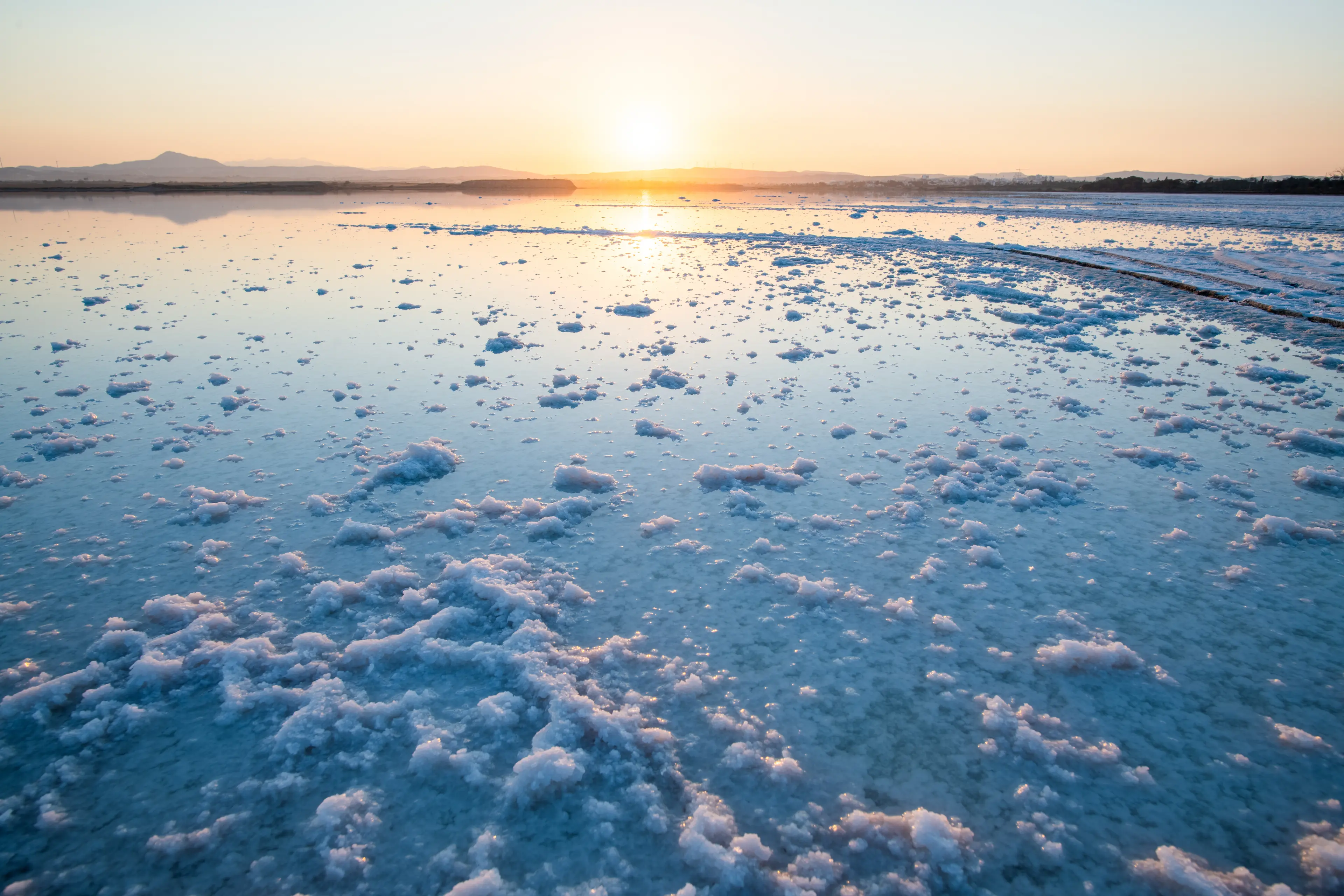
9Larnaca Salt Lake
Larnaca Salt Lake is a unique natural attraction, home to hundreds of flamingos during the winter. The area is perfect for bird watching and photography.
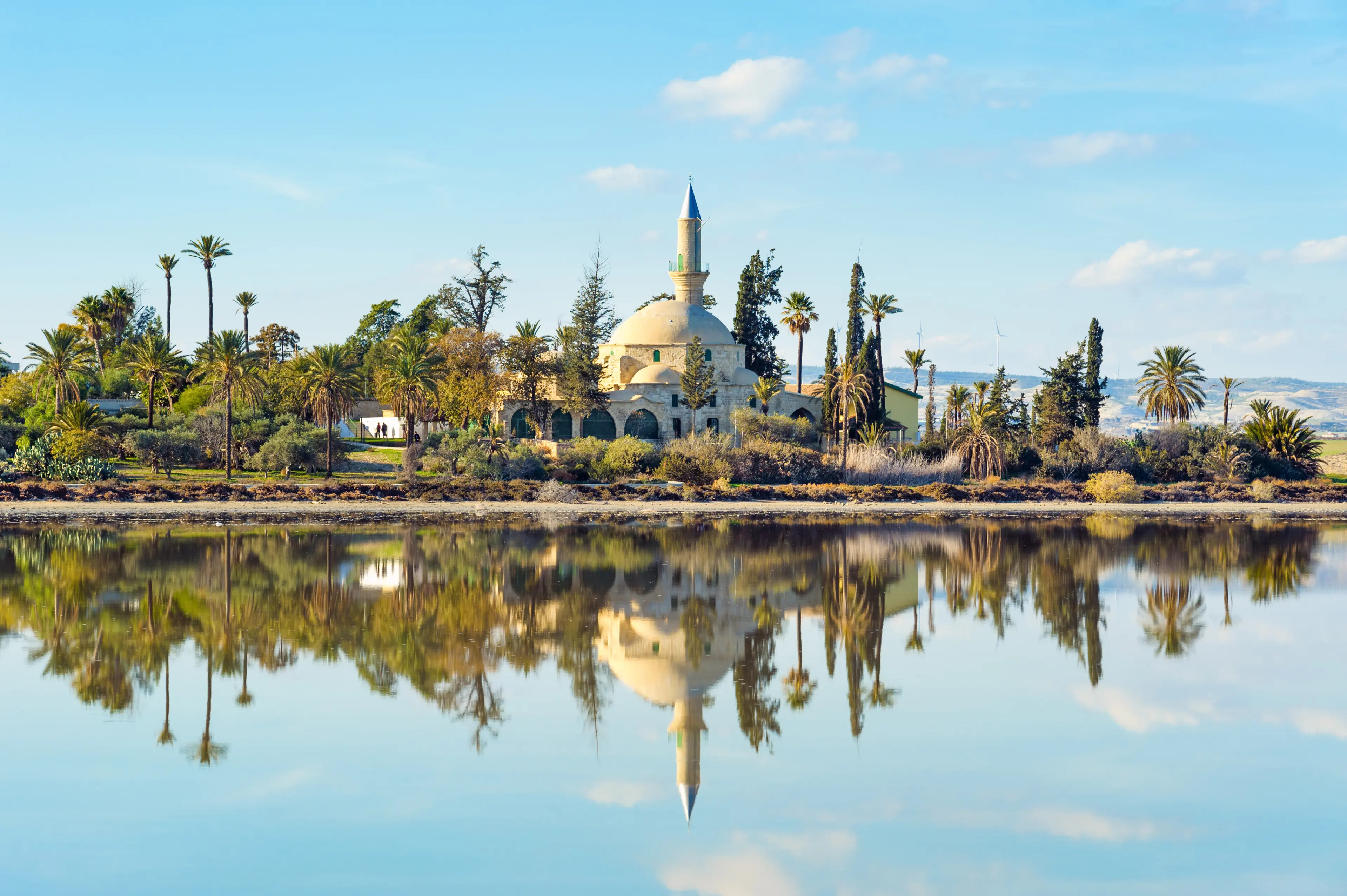
10Hala Sultan Tekke
Hala Sultan Tekke or the Mosque of Umm Haram is a Muslim shrine on the west bank of Larnaca Salt Lake. Umm Haram was the Islamic prophet Muhammad's wet nurse and the wife of Ubada bin al-Samit. The mosque complex is composed of a mosque, mausoleum, minaret, cemetery, and living quarters for men and women.
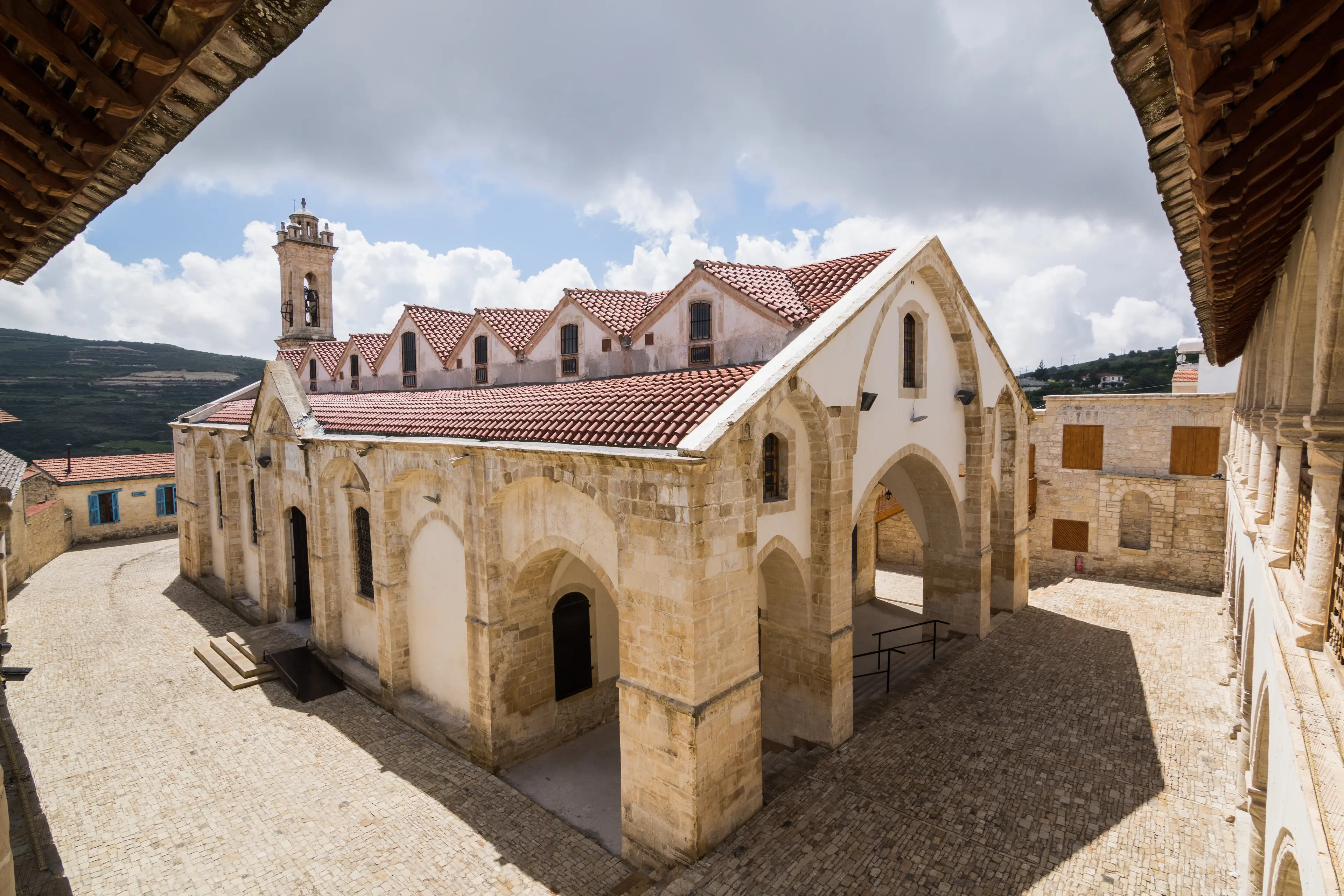
11Monastery of the Holy Cross
One of the oldest and most historic churches in Cyprus, known for its unique architecture and religious significance.
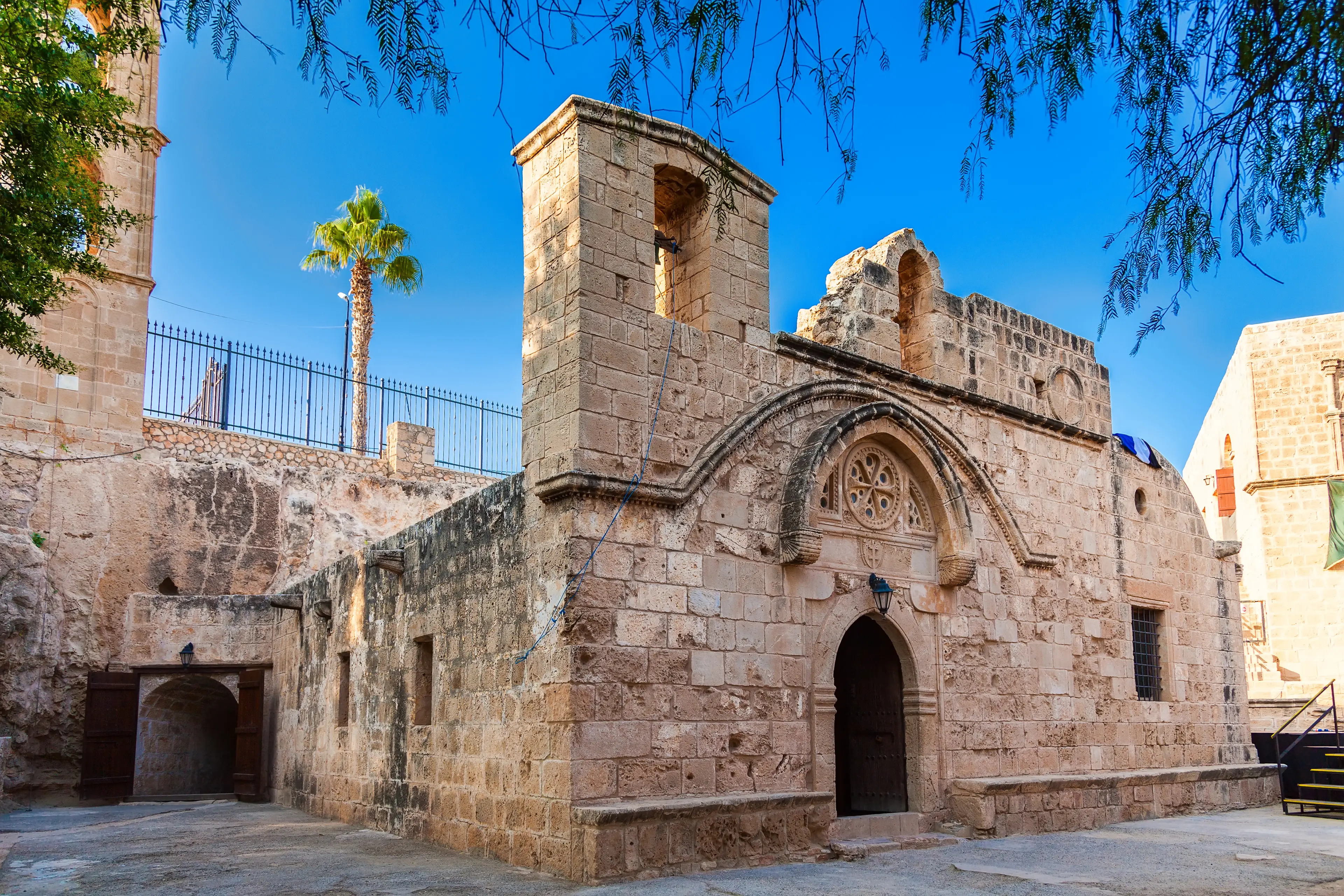
12Ayia Napa Monastery
This ancient monastery, located in the center of Ayia Napa, dates back to the Venetian era. It's one of the best-known landmarks in the area, offering a peaceful retreat from the nearby bustling resort.
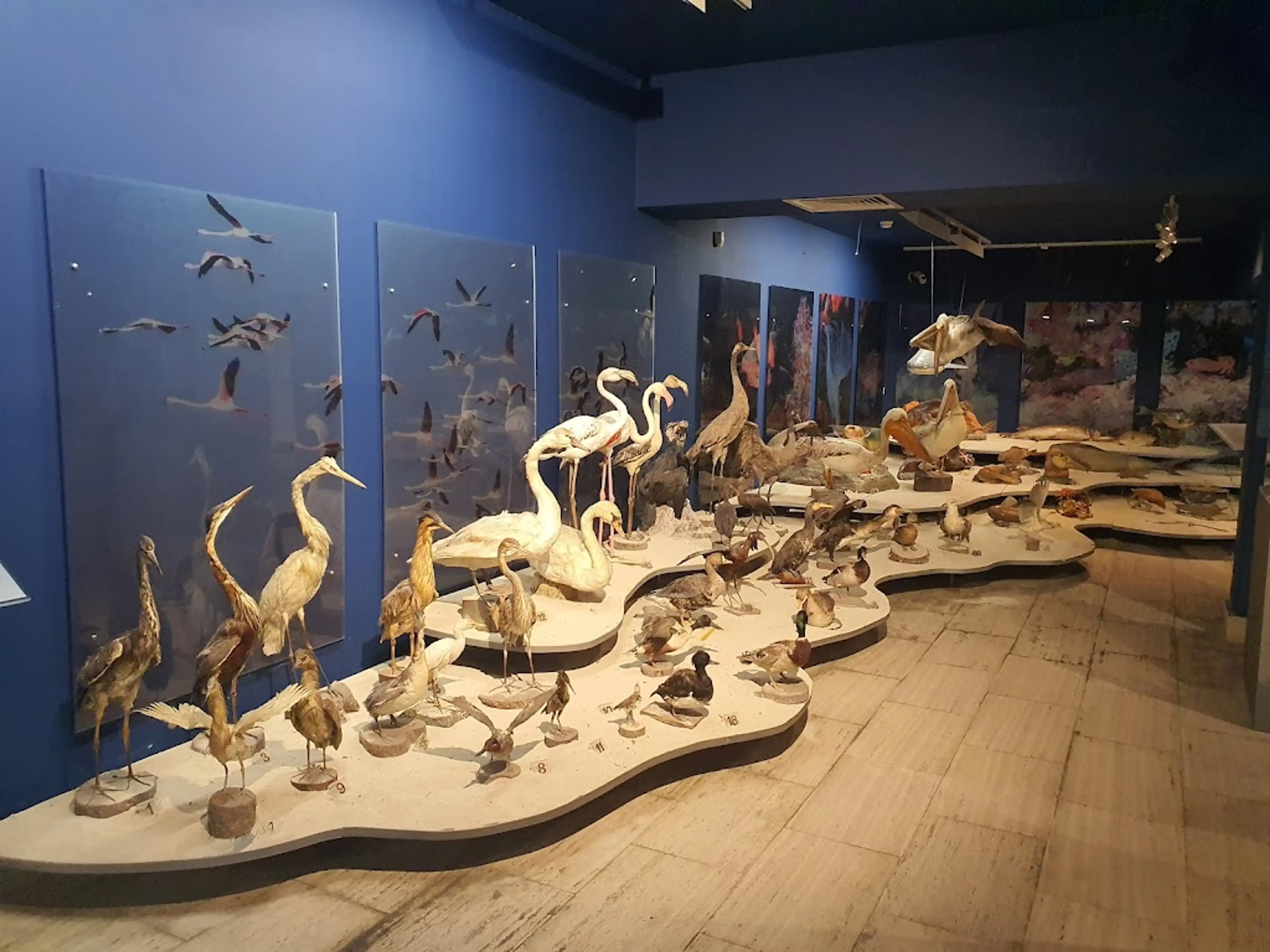
13Thalassa Museum
The Thalassa Museum is dedicated to the maritime history and marine heritage of Cyprus. It houses exhibits that showcase the island's relationship with the sea, from prehistoric times to the present.

14Omodos wineries
Omodos is a traditional village in the Troodos mountains known for its vineyards and wineries. Visitors can tour the wineries, sample local wines, and learn about the winemaking process.
Local Food and Drinks (12)

Souvla
A popular Cypriot dish made from large pieces of pork, chicken, or lamb cooked on a long skewer over a charcoal barbecue. It's a staple at Cypriot family gatherings and celebrations.
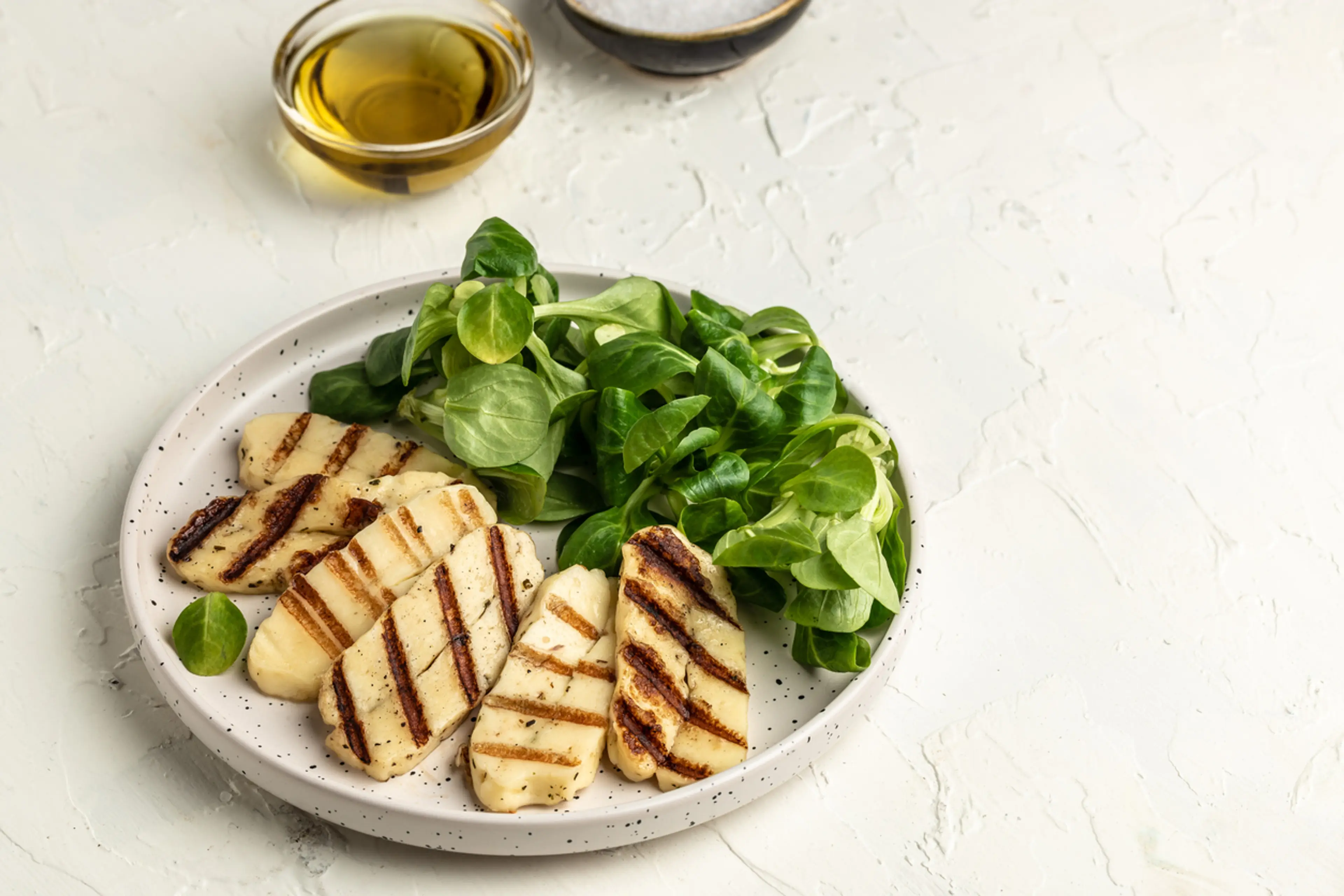
Halloumi
A semi-hard, unripened, brined cheese made from a mixture of goat's and sheep's milk, and sometimes also cow's milk. It's a traditional food in Cyprus and has a high melting point, making it perfect for frying or grilling.
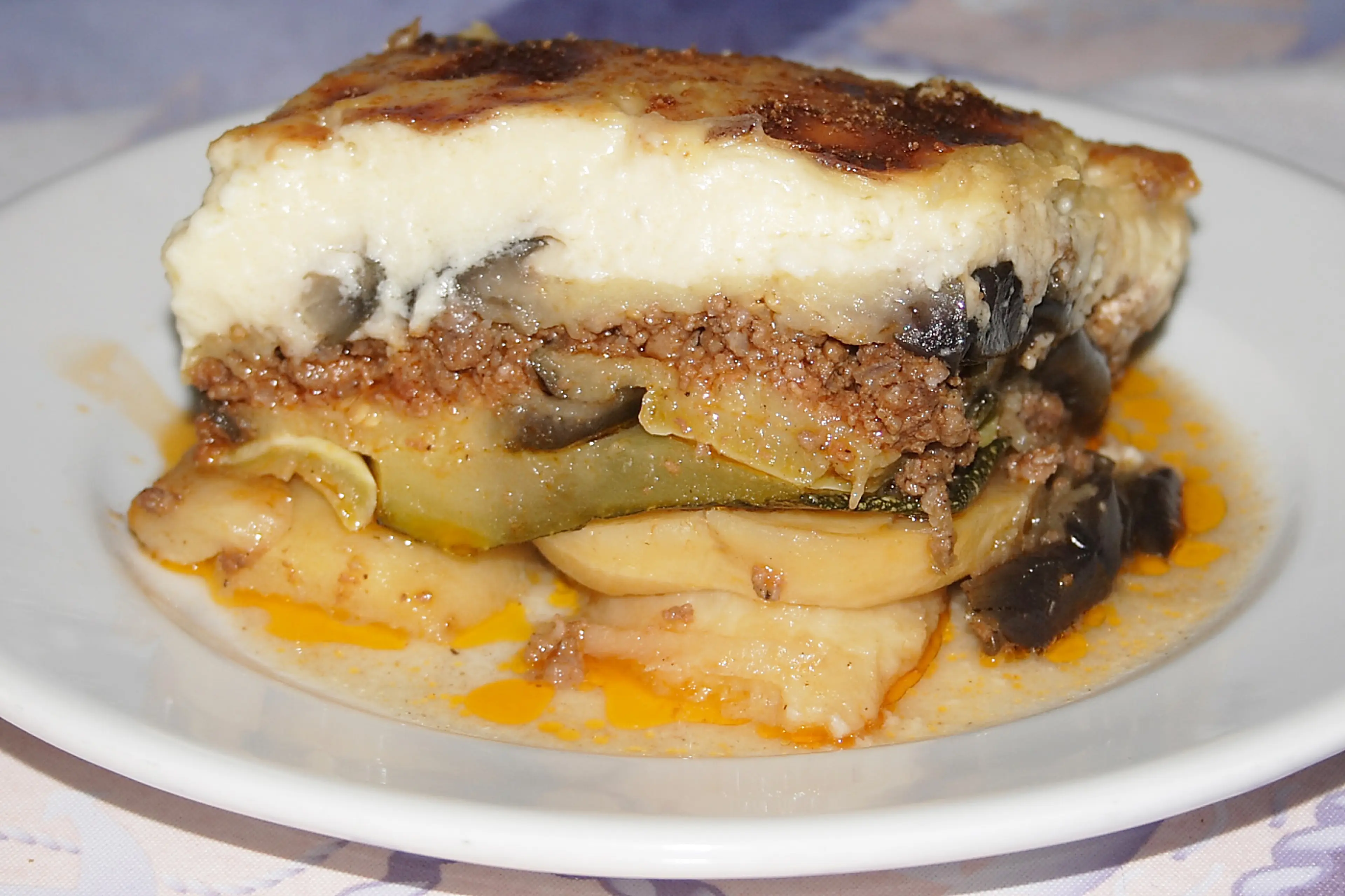
Moussaka
A layered dish made with eggplant or potatoes, minced meat, and a creamy béchamel sauce. It's a hearty and comforting dish that's popular in Cyprus and throughout the Mediterranean.
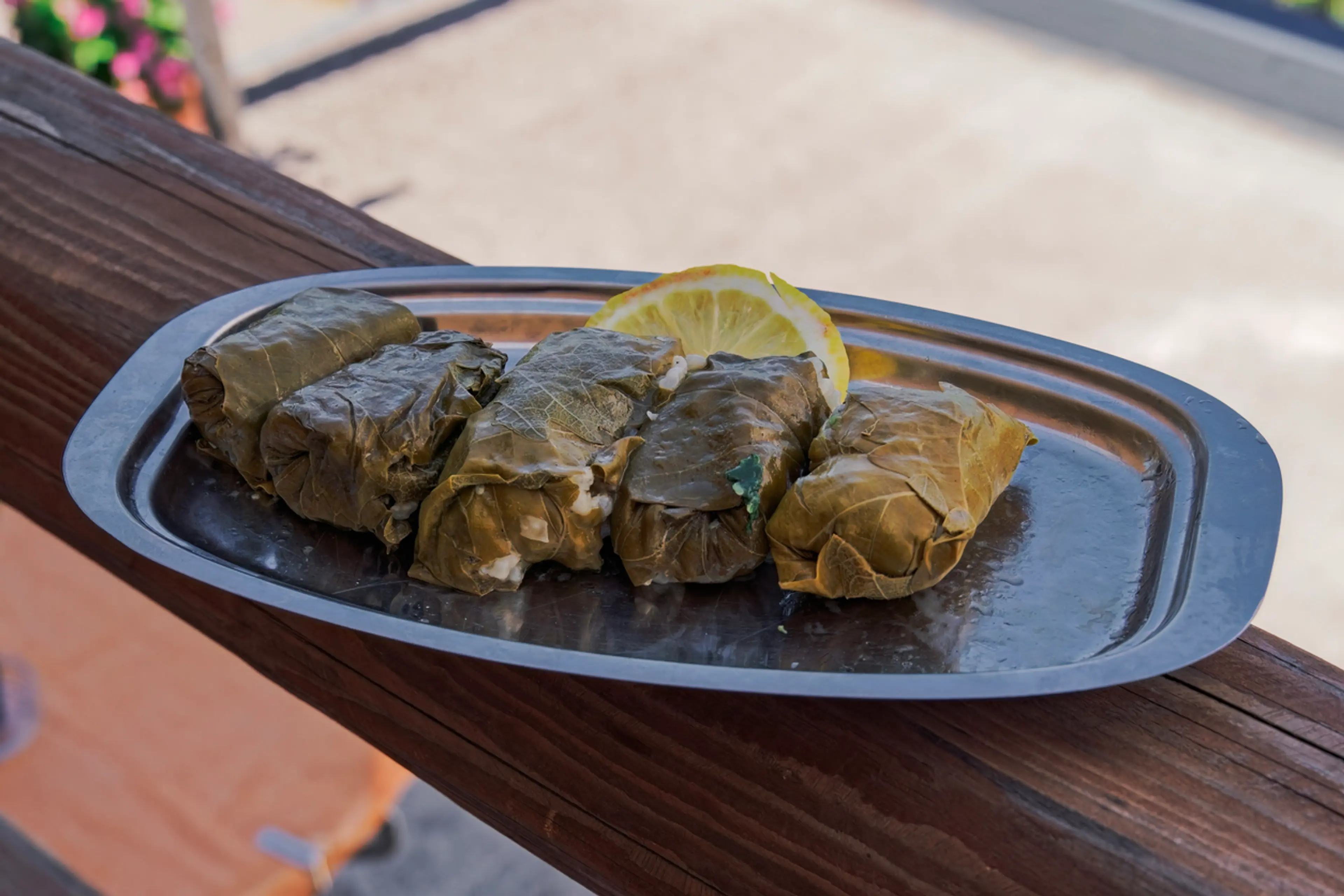
Koupepia
Also known as stuffed vine leaves, these are filled with a mixture of rice, minced meat, and herbs, then rolled and cooked. They're a traditional Cypriot appetizer and are often served with lemon wedges.
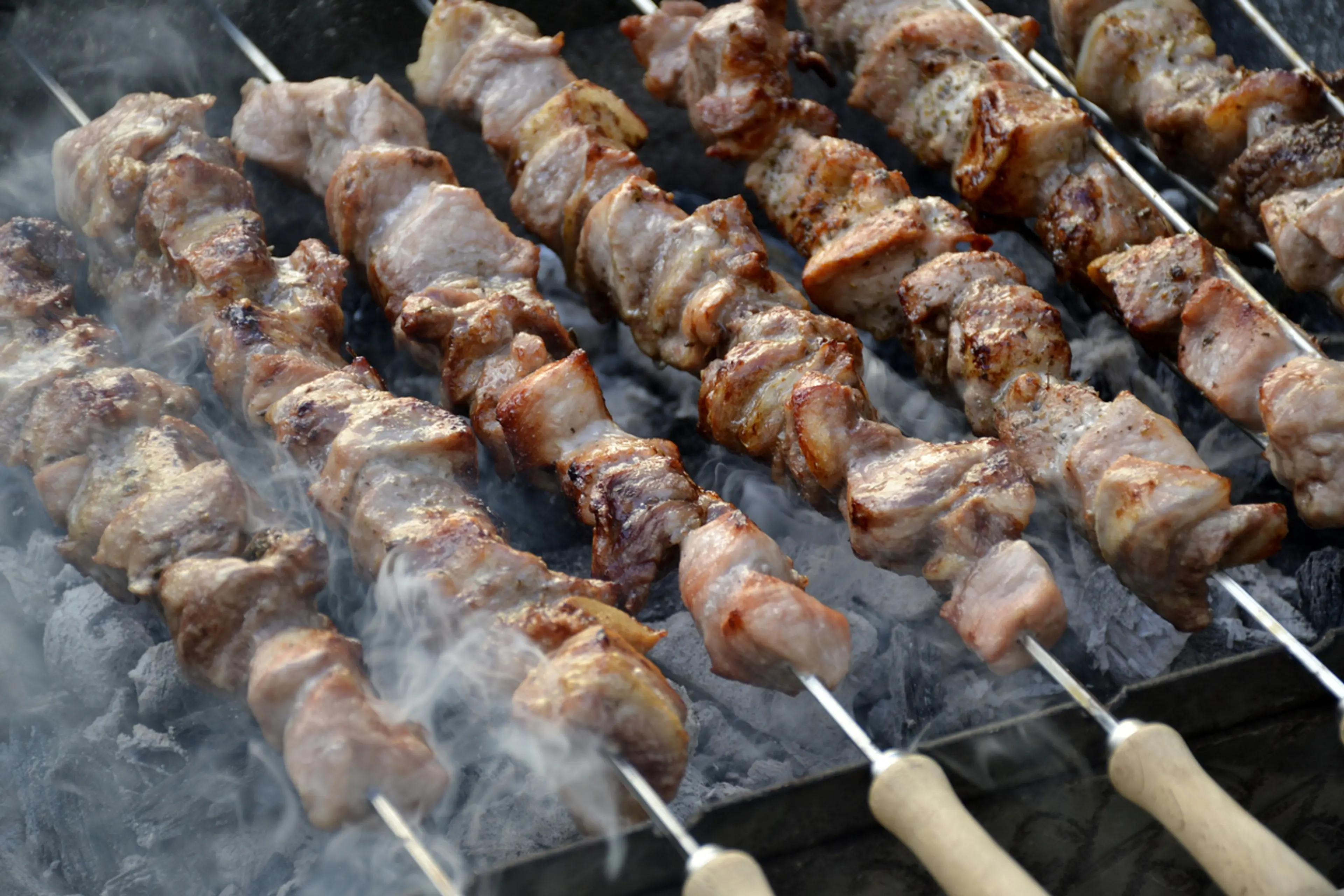
Souvlaki
Small pieces of meat and sometimes vegetables grilled on a skewer. It's a popular street food in Cyprus, often served in a pita bread with sauce and garnishes.
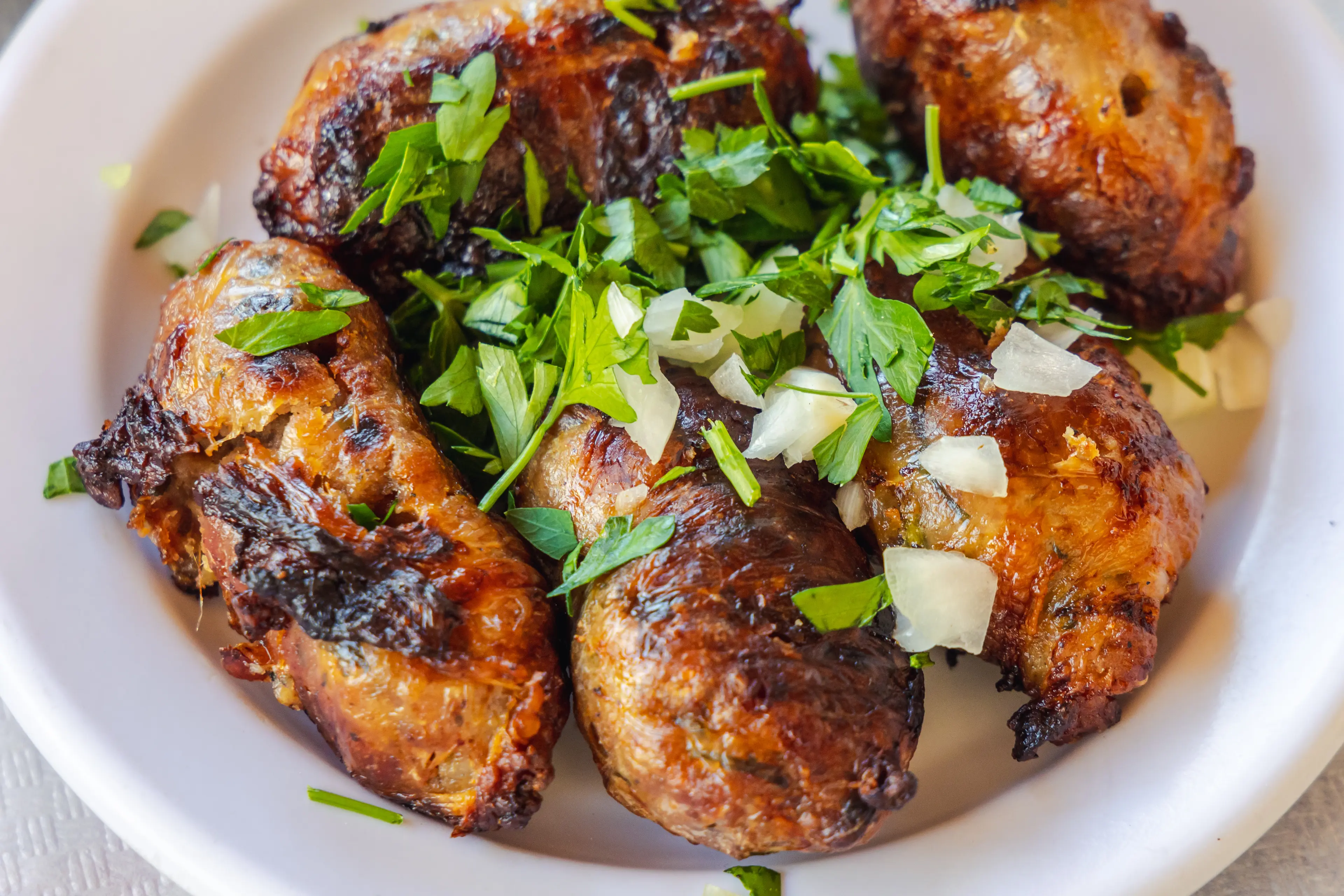
Sheftalia
A traditional Cypriot sausage made from minced pork or lamb, onions, parsley, and spices, wrapped in caul fat. It's typically grilled and served with pita bread.
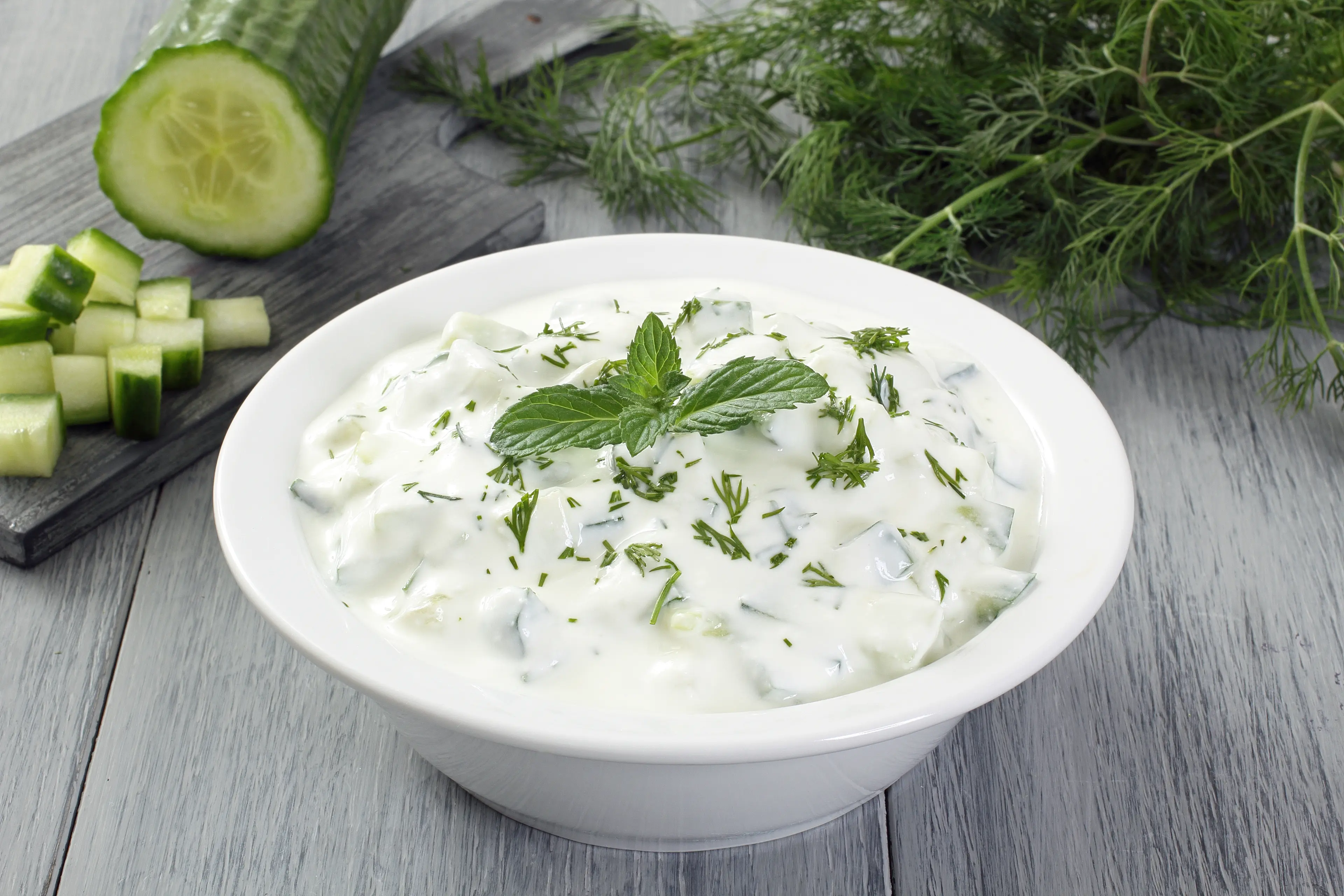
Tzatziki
A refreshing dip made from yogurt, cucumber, garlic, and herbs. It's a common accompaniment to many Cypriot dishes and is often served with bread or vegetables for dipping.
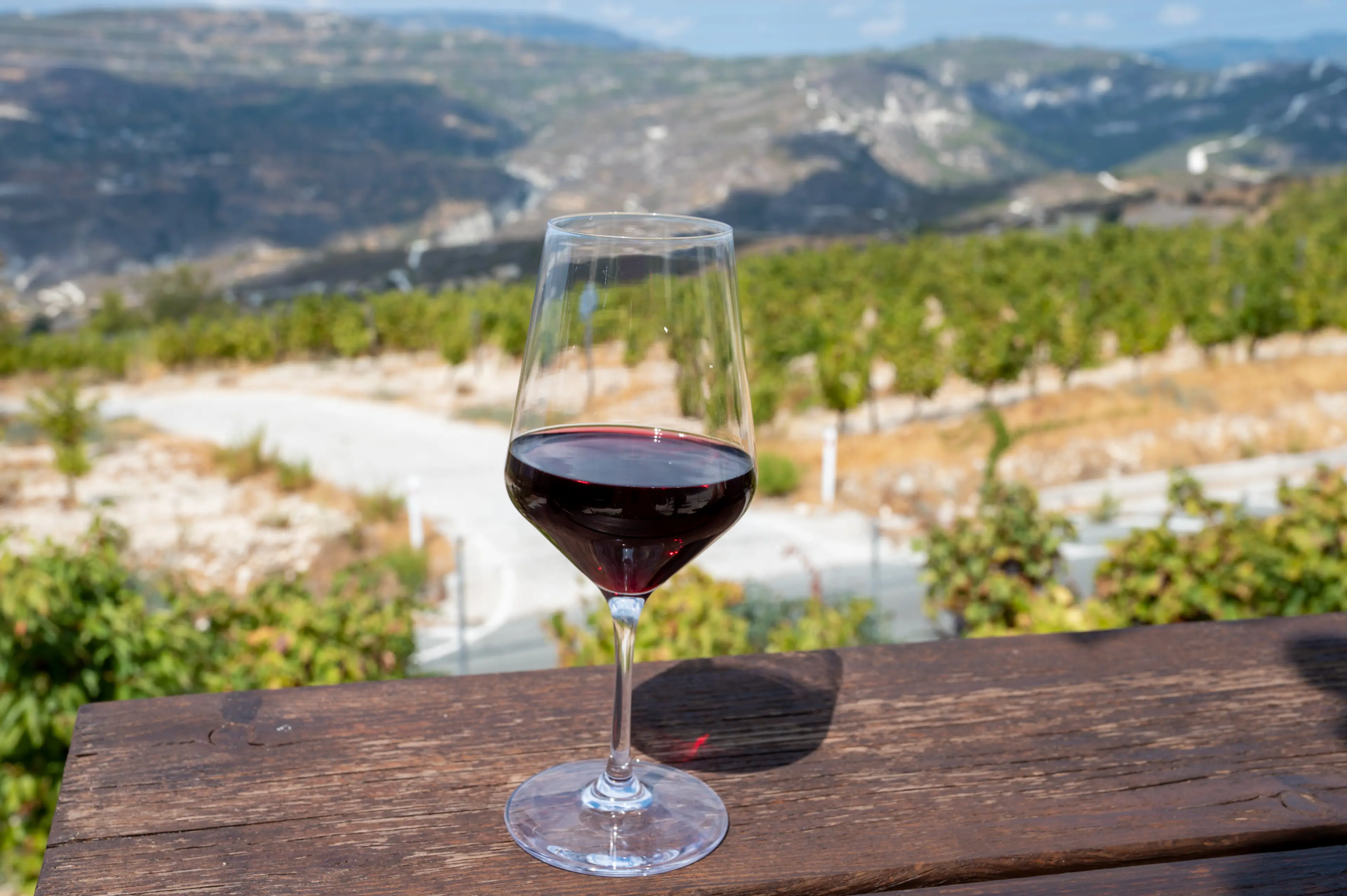
Commandaria
A sweet dessert wine made from sun-dried grapes. It's one of the oldest wines in the world and has been produced in Cyprus for thousands of years.
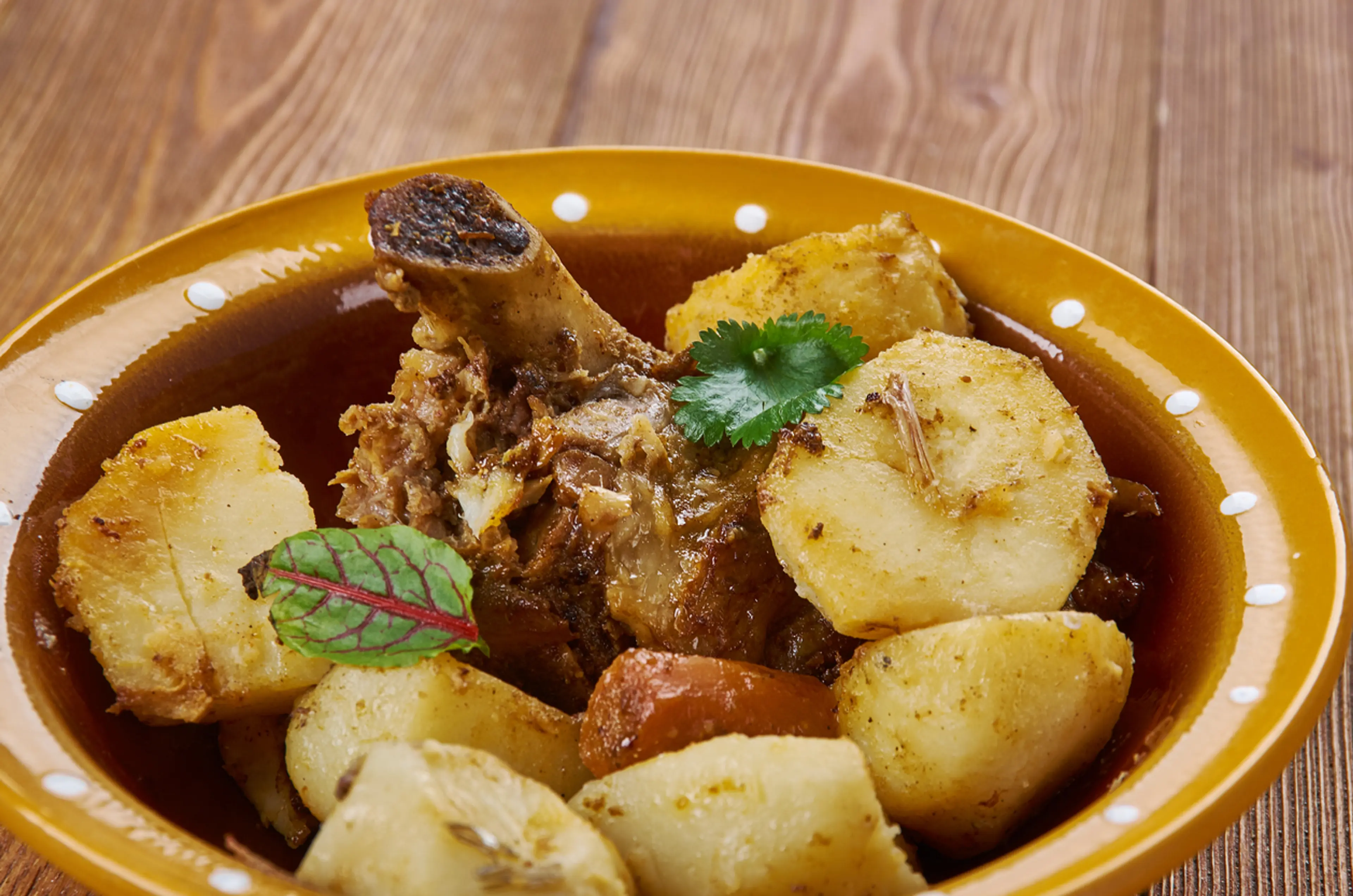
Kleftiko
A slow-cooked lamb dish that's marinated with lemon juice and herbs, then baked in a clay oven. The name translates to 'stolen meat', referring to its historical preparation by thieves in hidden underground ovens.

Airani
A refreshing drink made from yogurt, water, and a pinch of salt. It's a popular beverage in Cyprus, especially during the hot summer months.

Loukoumades
Small, deep-fried dough balls that are soaked in syrup and often sprinkled with cinnamon or sesame seeds. They're a popular dessert in Cyprus, especially during festivals and celebrations.
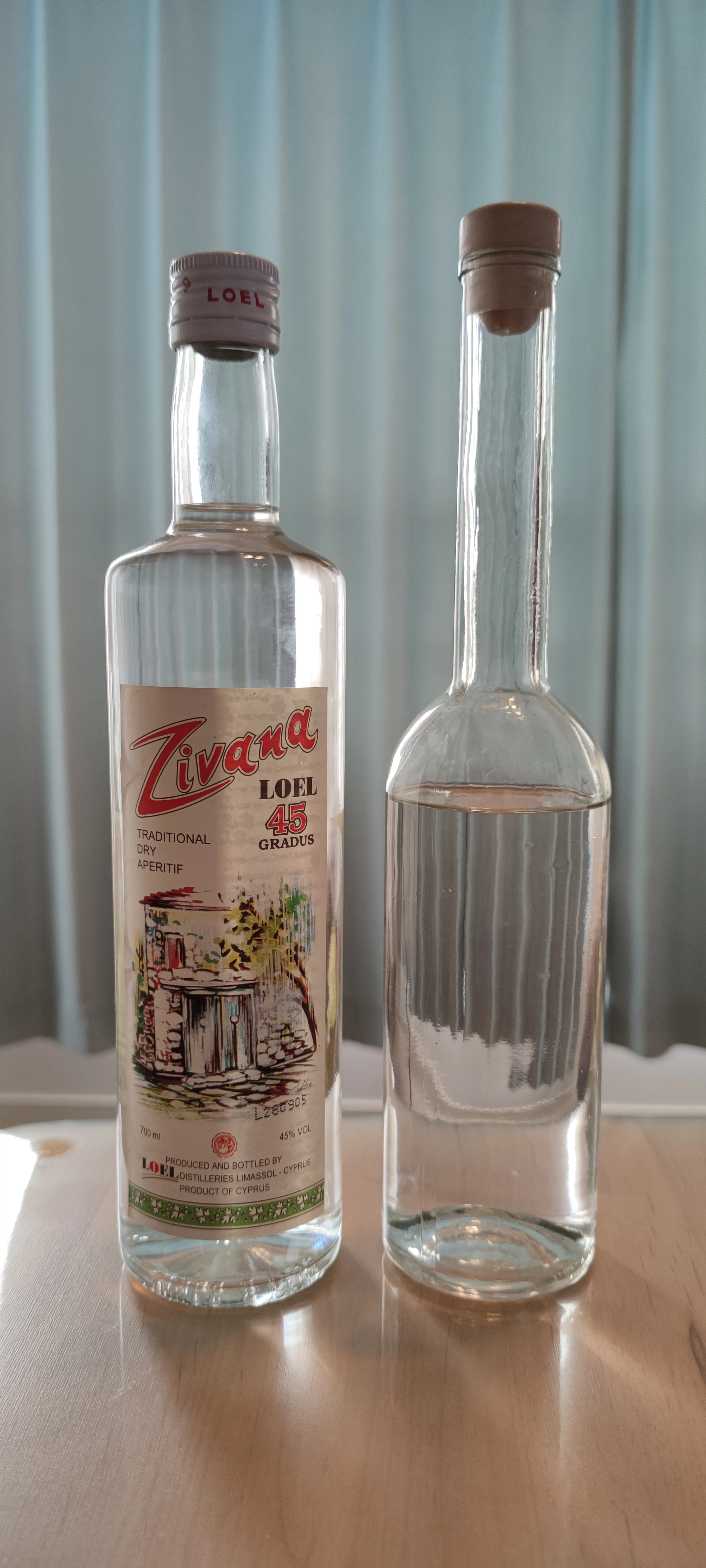
Zivania
A traditional Cypriot spirit made from distilled grape pomace. It's a strong, clear drink that's often served as a digestif after meals.
Best time to visit
The best time to visit Cyprus as a tourist is during the spring months of April to June and the autumn months of September and October. During these periods, the weather is pleasantly warm, ranging from 20°C to 30°C, and the island is less crowded. These months are also ideal for outdoor activities such as hiking, sightseeing, and exploring the beautiful beaches. However, if you enjoy swimming and water sports, the summer months of July and August offer the warmest sea temperatures.
How to get around
Car Rental
Renting a car is a popular option for getting around in Cyprus. It provides the flexibility to explore the island at your own pace. International and local car rental companies are available at the airport and major towns. Remember, in Cyprus, you drive on the left-hand side of the road.
Public Buses
Cyprus has a comprehensive public bus network, with services connecting all major towns and tourist destinations. Buses are reliable and relatively inexpensive. However, they may not be the best option if you're planning to visit more remote areas.
Intercity Buses
Intercity buses connect all major cities in Cyprus. They are a cost-effective and efficient way to travel between cities. However, they do not operate on a frequent schedule, so planning ahead is essential.
Taxis
Taxis are readily available in all towns and tourist areas. They are metered and can be hailed from the street or booked in advance. They are a convenient but more expensive option for getting around.
Shared Taxis
Shared taxis, also known as service taxis, operate on fixed routes between major towns. They are a cost-effective way to travel if you're not in a hurry and don't mind sharing the ride with others.
Ridesharing
Ridesharing services such as Bolt are available in Cyprus. They can be booked via a smartphone app and offer a convenient and often cheaper alternative to traditional taxis.
Bicycles
Cycling is a popular way to get around in Cyprus, especially in the coastal areas. Many towns have dedicated cycling paths. Bicycles can be rented from numerous outlets.
Foot
Many of the attractions in Cyprus's towns and cities are within walking distance of each other. Walking is a great way to explore and soak up the local atmosphere.
Ferries
Ferries operate between various ports in Cyprus and offer a scenic way to travel, especially if you're heading to or from the Greek Islands.
Airport Transfers
Pre-booked airport transfers are a convenient way to get to and from the airport. They can be arranged as private or shared services.
Important information
Currency€ EUR
Time zoneUTC+2
Driving sideLeft
Emergency phone112
Drinking waterOpt for bottled water
Power sockets
Voltage230 V
Things to know about Cyprus as a first time visitor
1
Cyprus is a member of the European Union, so the currency used is the Euro.
2
English is widely spoken in Cyprus, especially in tourist areas, so communication should not be a problem.
3
Driving is on the left-hand side of the road in Cyprus, similar to the UK.
4
Cyprus has a Mediterranean climate with hot, dry summers and mild winters. Summer temperatures can reach up to 104°F (40°C) and winter temperatures can drop to around 59°F (15°C).
5
Cyprus is generally a safe country to visit, but as with any destination, it's important to take care of your belongings and be aware of your surroundings.
6
The tap water in Cyprus is safe to drink, but bottled water is also widely available.
7
Cyprus uses the Type G plug (the same as the UK), so you may need to bring an adapter if your devices use a different type.
8
Cyprus is two hours ahead of Greenwich Mean Time (GMT+2).
9
Cyprus has a rich history and culture, so it's worth learning a bit about the country's past before your visit.
10
Cypriot cuisine is a blend of Greek and Turkish influences, so be sure to try local dishes like souvlaki and halloumi.
11
Tipping is customary in Cyprus. It's usual to leave around 10% of the bill in restaurants.
12
Cyprus has strict laws against the removal of antiquities, so avoid buying any items that may be considered cultural artifacts.
13
Public transportation in Cyprus is reliable and affordable, with a good network of buses and taxis.
14
Cyprus has a high standard of healthcare, but it's recommended to have travel insurance that covers medical expenses.
15
Cyprus is known for its wine production, so consider visiting a local winery or vineyard.
16
Cyprus has a smoking ban in public places, but some bars and restaurants have designated smoking areas.
17
Cyprus has a zero-tolerance policy towards drugs, with severe penalties for possession, use, or trafficking.
18
Credit cards are widely accepted in Cyprus, but it's always a good idea to carry some cash for smaller establishments or emergencies.
19
Cyprus has a relaxed dress code, but it's respectful to dress modestly when visiting religious sites.
20
Cyprus has a stray cat population, especially in urban areas. They are generally friendly, but avoid feeding them as it can encourage overpopulation.
Basic Greek to know as a first time visitor
English phrase | Native phrase | Pronunciation | When to use it |
|---|---|---|---|
Hello | Γειά σου | Yah soo | Greeting someone |
Goodbye | Αντίο | Adio | Leaving or saying goodbye |
Please | Παρακαλώ | Parakalo | Making a request |
Thank you | Ευχαριστώ | Efharisto | Expressing gratitude |
Yes | Ναι | Ne | Agreeing or confirming |
No | Όχι | Ohi | Disagreeing or denying |
Excuse me | Συγγνώμη | Signomi | Getting attention or apologizing |
I'm sorry | Λυπάμαι | Lipame | Apologizing |
Do you speak English? | Μιλάτε αγγλικά? | Milate anglika? | Asking if someone speaks English |
I don't understand | Δεν καταλαβαίνω | Den katalaveno | Not understanding something |
Where is the bathroom? | Πού είναι η τουαλέτα? | Pou ine i tualeta? | Looking for the bathroom |
How much does this cost? | Πόσο κοστίζει αυτό? | Poso kostizi afto? | Asking for the price |
I would like... | Θα ήθελα... | Tha ithela... | Making a request or order |
Help! | Βοήθεια! | Voithia! | In case of emergency |
Good morning | Καλημέρα | Kalimera | Greeting in the morning |
Good night | Καληνύχτα | Kalinikta | Saying goodbye in the evening |
Water | Νερό | Nero | Ordering water |
Food | Φαγητό | Fagito | Talking about food |
Beer | Μπύρα | Bira | Ordering beer |
Wine | Κρασί | Krasi | Ordering wine |
Packing List
Clothing
Underwear (7 pairs)
Socks (7 pairs)
T-shirts (7)
Shorts (3 pairs)
Long pants/jeans (2 pairs)
Dresses/skirts (for women, if applicable)
Swimwear (2)
Lightweight jacket
Pajamas
Comfortable walking shoes
Sandals/flip-flops
Hat/cap for sun protection
Sunglasses
Toiletries
Toothbrush and toothpaste
Deodorant
Shampoo and conditioner
Body wash/soap
Razor and shaving cream
Sunscreen
After-sun lotion
Makeup (if applicable)
Makeup remover (if applicable)
Hairbrush/comb
Feminine hygiene products (if applicable)
Prescription medications (if applicable)
First aid kit (band-aids, antiseptic wipes, tweezers)
Travel documents and essentials
Passport/ID
Flight tickets
Hotel booking confirmation
Travel insurance documents
Emergency contact information
Local currency (Euros)
Credit/debit cards
Driver's license (if planning to rent a car)
Electronics and gadgets
Smartphone
Charger for smartphone
Power bank
Headphones/earbuds
Camera (if not using smartphone for photos)
Charger for camera
Universal travel adapter
E-reader or physical book for leisure reading
Miscellaneous items
Travel pillow for flight
Earplugs and eye mask
Snacks for flight
Reusable water bottle
Travel guidebook for Cyprus
Language phrasebook or app
Beach bag
Beach towel
Umbrella or lightweight rain jacket
Daypack for daily excursions
Weather Conditions
Cyprus, known for its Mediterranean climate, offers warm and sunny weather for most of the year. The summer months, from June to September, are typically hot and dry with temperatures ranging from 75°F to 95°F (24°C to 35°C). This is the perfect time for beach activities, so don't forget your sunscreen, hat, and plenty of water to stay hydrated. The winter months, from December to February, are mild and slightly rainy with temperatures ranging from 50°F to 60°F (10°C to 15°C). If you're planning to visit during this time, pack some light layers and a waterproof jacket. Despite the rain, this is a great time to explore the island's cultural sites without the summer crowds. Spring (March to May) and autumn (October and November) are considered the best times to visit Cyprus. The weather during these periods is very pleasant, with temperatures ranging from 60°F to 75°F (15°C to 24°C). These seasons offer comfortable conditions for outdoor activities like hiking and sightseeing. Regardless of when you visit, keep in mind that the weather can vary between the coastal areas and the Troodos Mountains. The mountains tend to be cooler, so if you're planning to hike or ski there, pack accordingly. Lastly, always check the local weather forecast before planning your day's activities. Cyprus is generally sunny, but it's always good to be prepared for unexpected changes in weather.
| Month | Hi / Lo (°C) | Weather Overview |
|---|---|---|
January | 16° / 8° | January is the coldest month in Cyprus, but still relatively mild with occasional rain. |
February | 17° / 8° | February sees a slight increase in temperature, with almond trees blossoming and the countryside turning green. |
March | 19° / 9° | March brings the arrival of spring, with wildflowers blooming and temperatures gradually rising. |
April | 23° / 11° | April is a great time to visit Cyprus, with warm temperatures and the Easter celebrations. |
May | 27° / 15° | May is the start of the summer season, with long sunny days and temperatures perfect for beach activities. |
June | 31° / 19° | June is a hot month, with clear blue skies and high temperatures, perfect for sunbathing and water sports. |
July | 34° / 22° | July is the hottest month in Cyprus, with very high temperatures and a bustling tourist season. |
August | 34° / 22° | August is equally hot as July, with high temperatures and a peak tourist season. |
September | 31° / 19° | September is a great time to visit, with slightly cooler temperatures and less crowded beaches. |
October | 27° / 15° | October brings the start of autumn, with warm temperatures and beautiful autumn colors. |
November | 23° / 11° | November is a mild month, with cooler temperatures and the start of the rainy season. |
December | 17° / 9° | December is a cool month, with occasional rain and the festive Christmas season. |
Did you know?
Places near by Cyprus
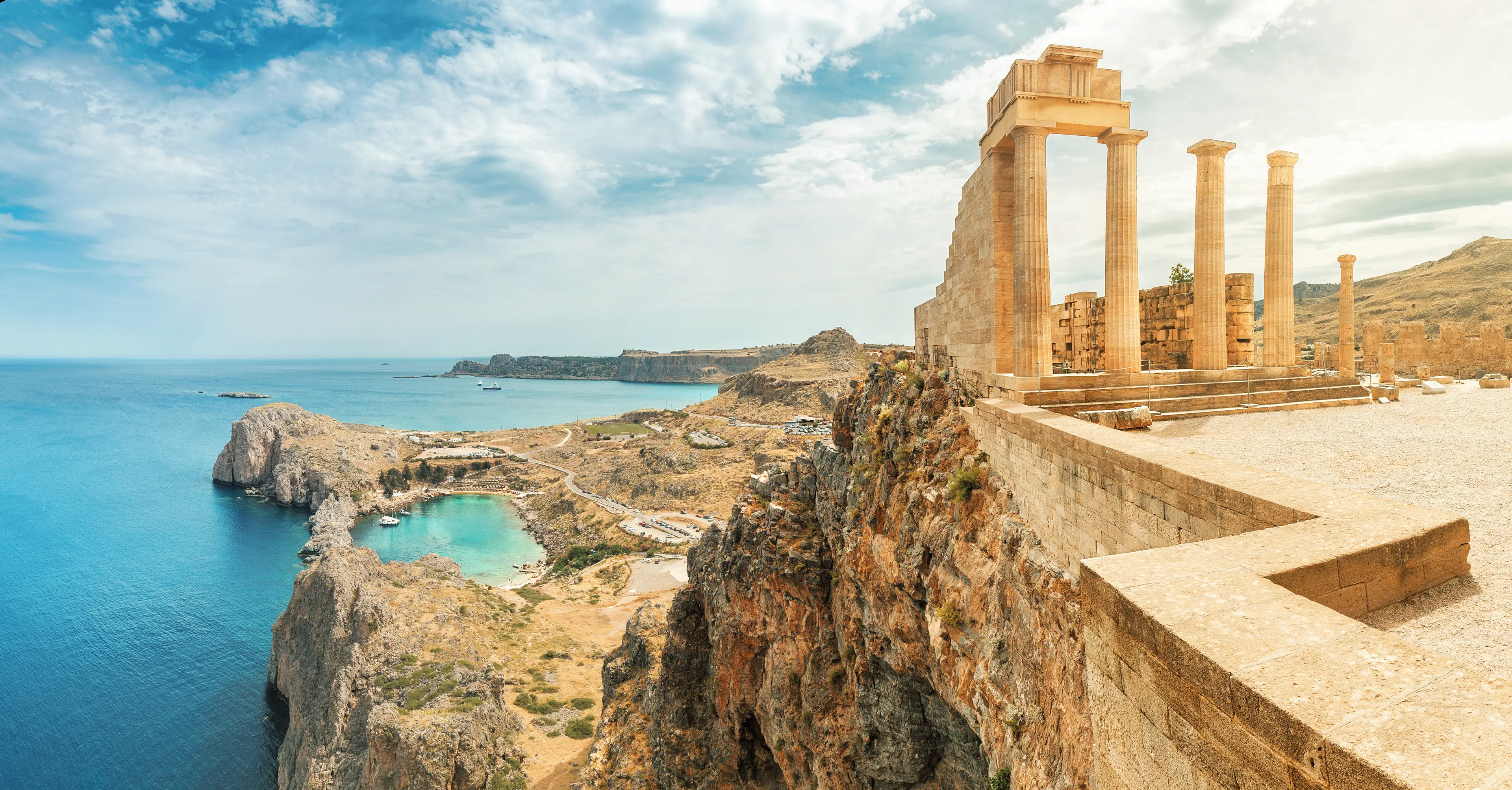
Rhodes
A beautiful Greek island known for its beach resorts and ancient ruins.
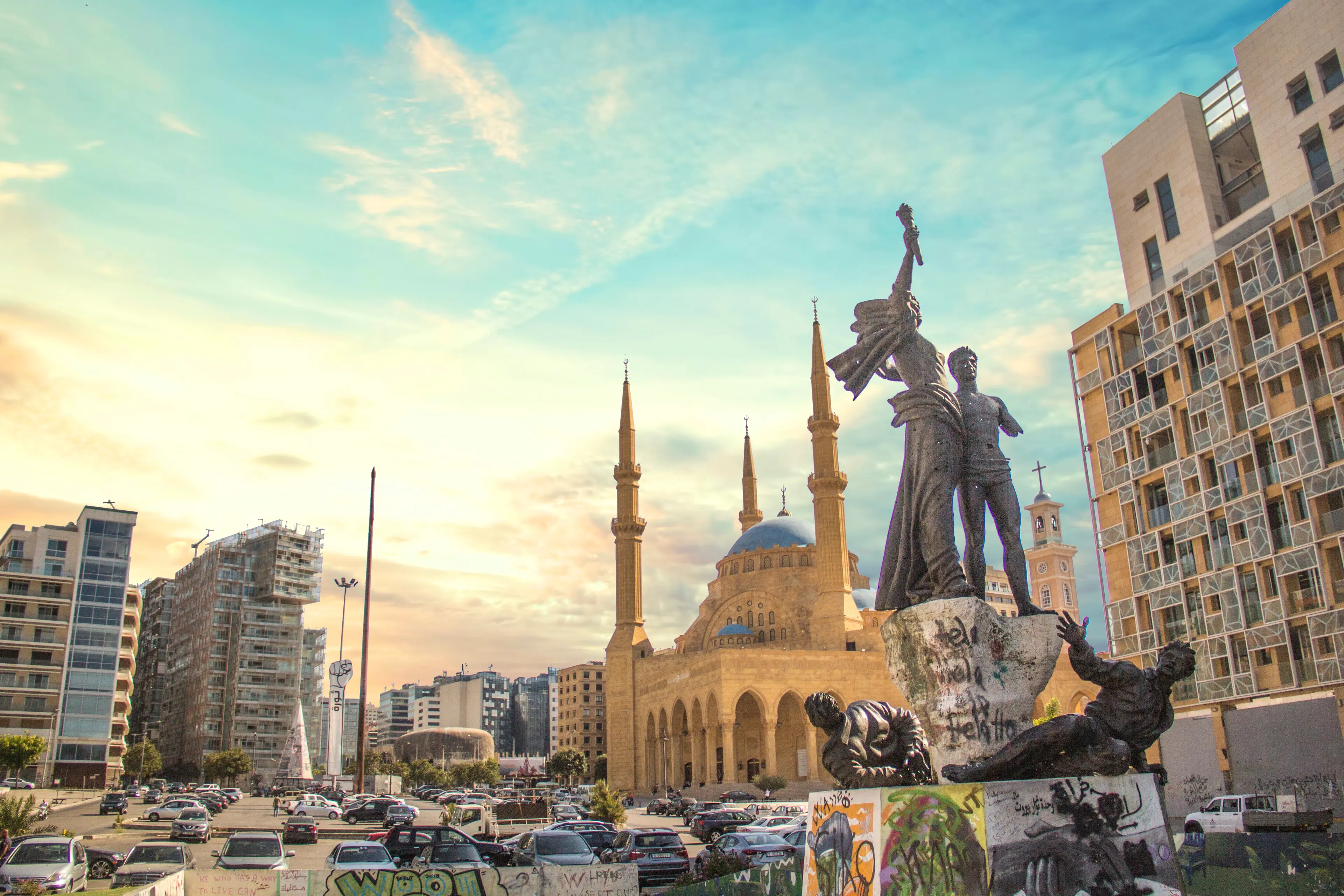
Beirut
Lebanon's capital, known for its vibrant nightlife, shopping, and rich history.
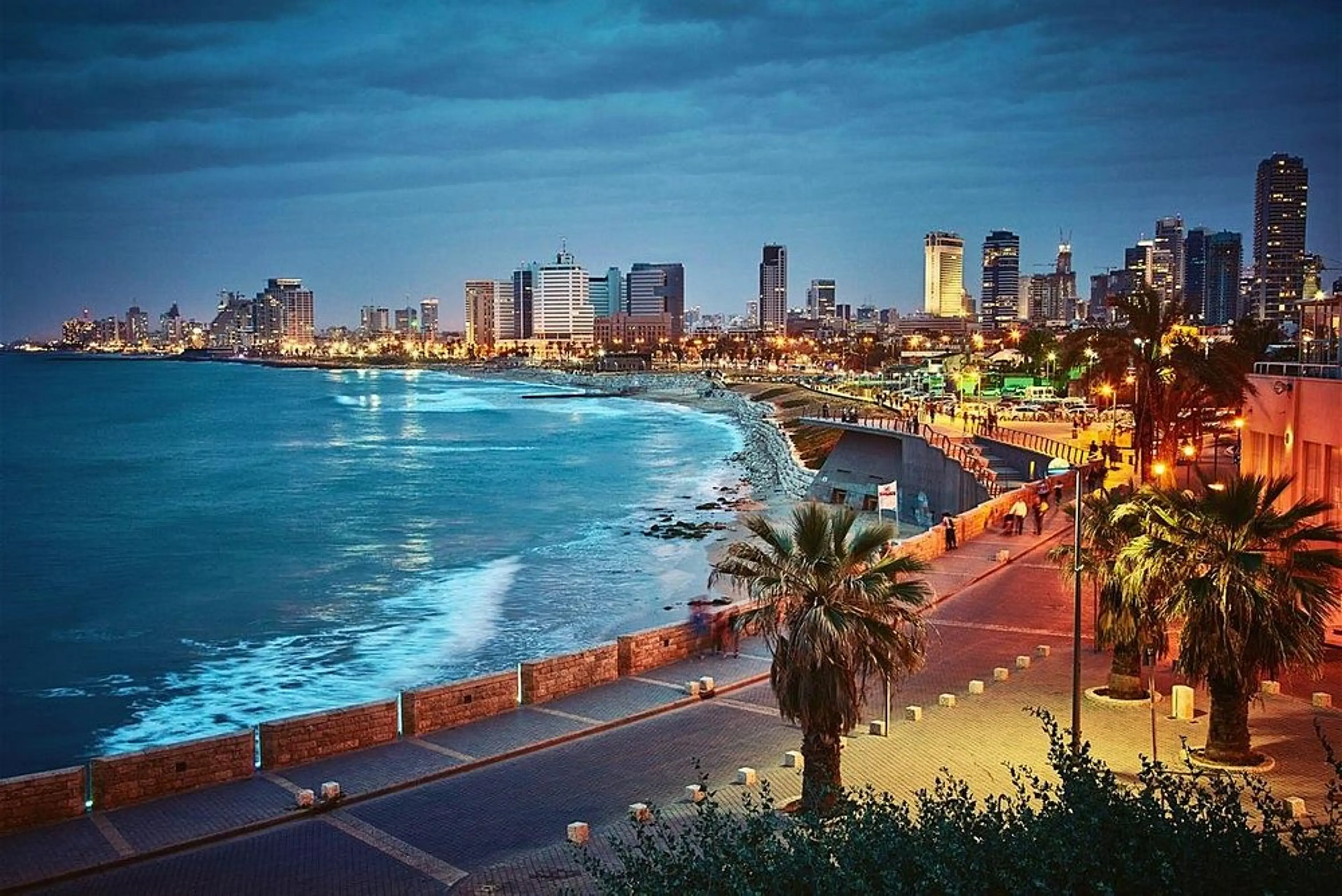
Tel Aviv
A vibrant city in Israel known for its nightlife, modern architecture, and beautiful beaches.
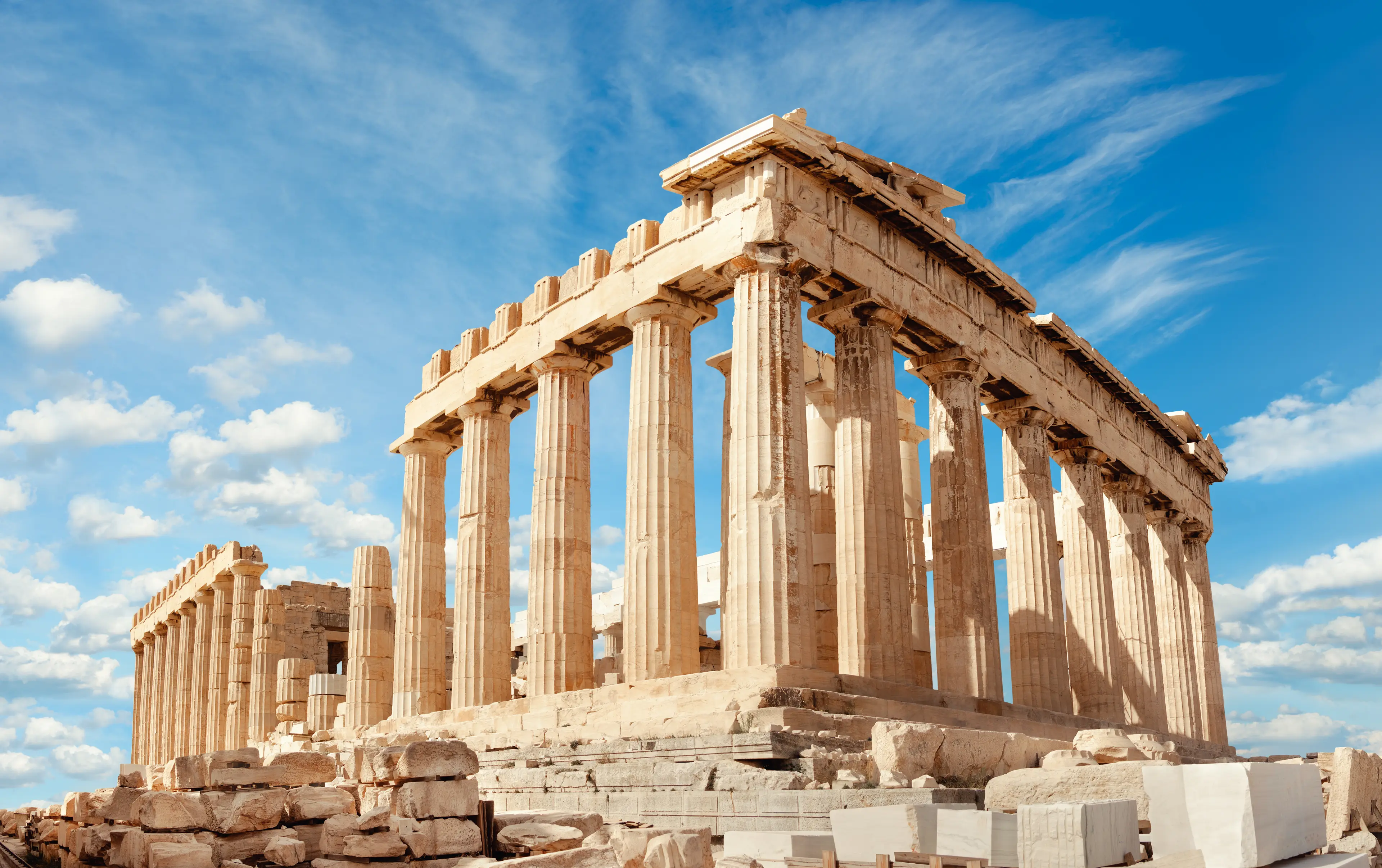
Athens
The capital of Greece, known for its historic sites such as the Acropolis.

Alexandria
A Mediterranean port city in Egypt known for its preserved 19th-century architecture.
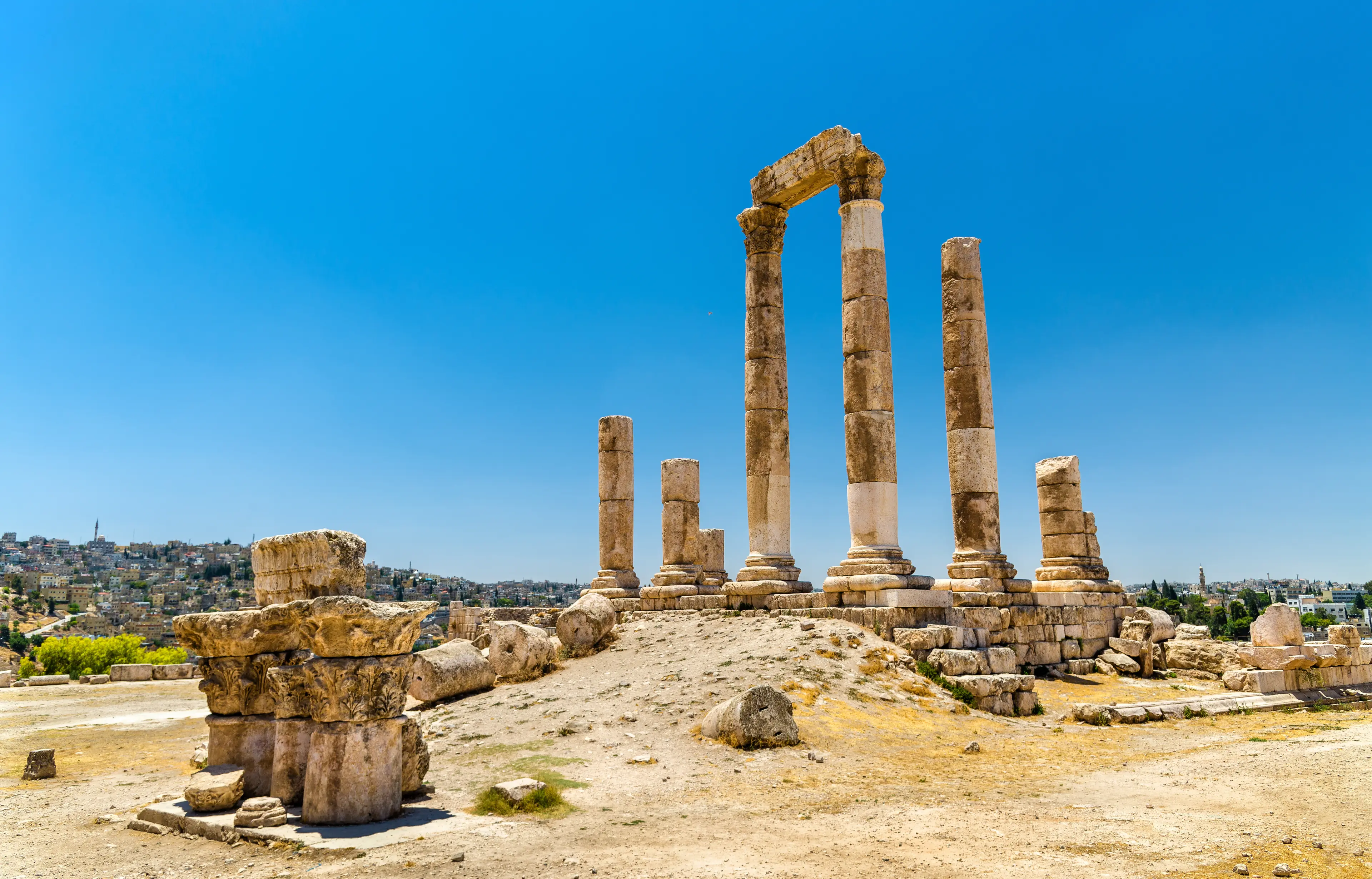
Amman
The capital of Jordan, known for its ancient ruins and modern buildings.
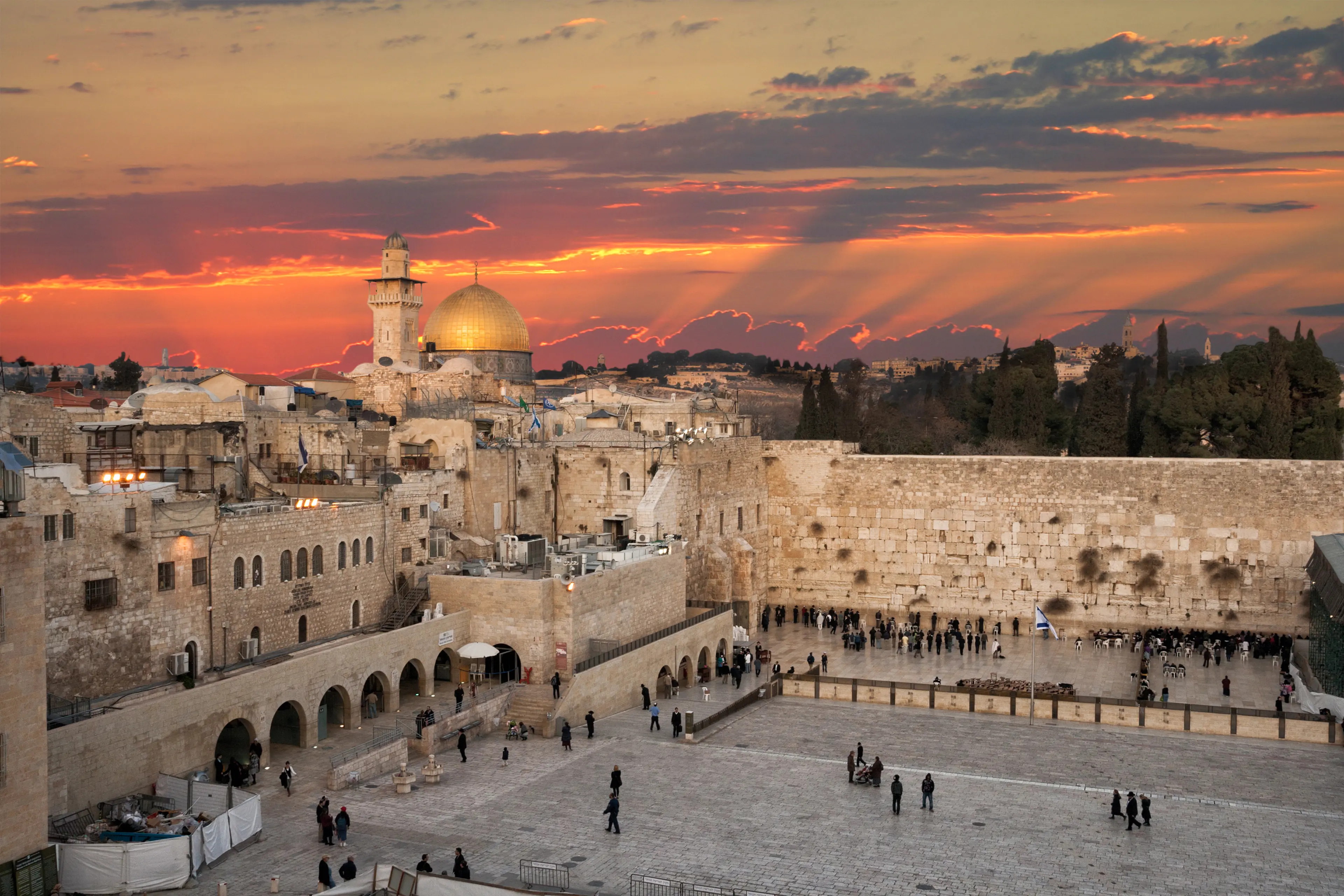
Jerusalem
A city in the Middle East, located on a plateau in the Judaean Mountains between the Mediterranean and the Dead Sea.
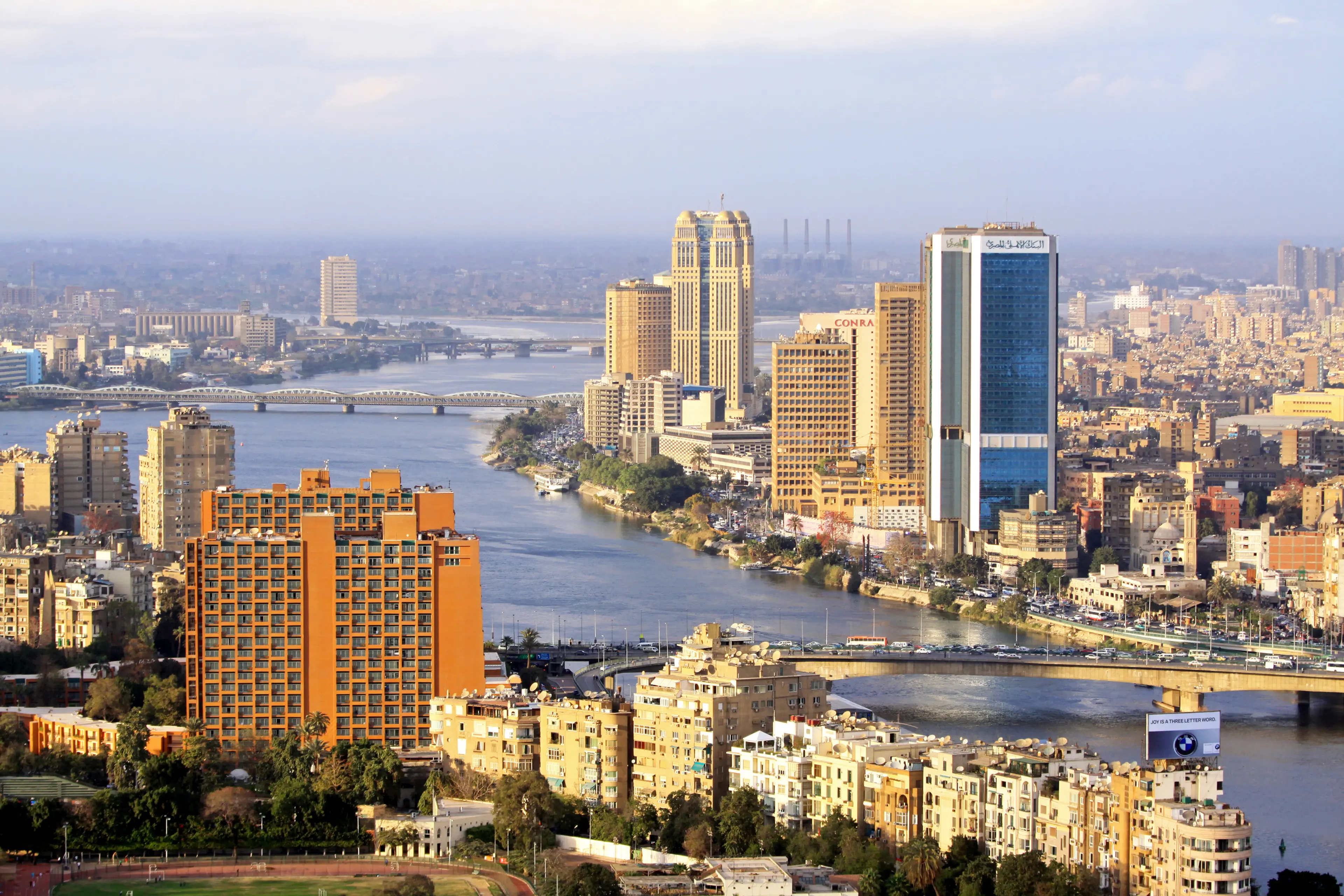
Cairo
Egypt's sprawling capital, set on the Nile River, known for its ancient landmarks.

